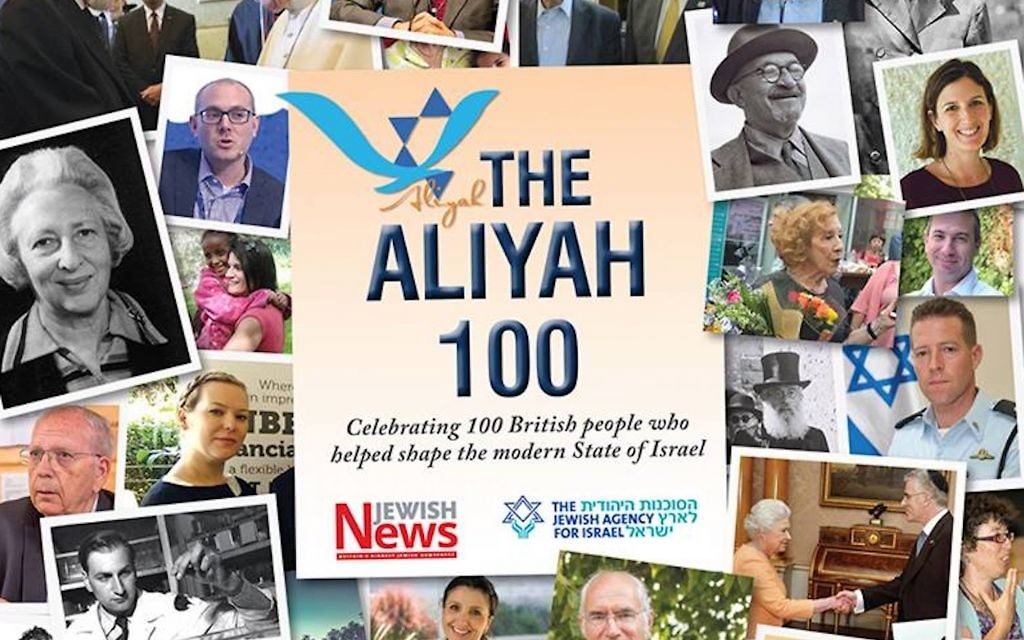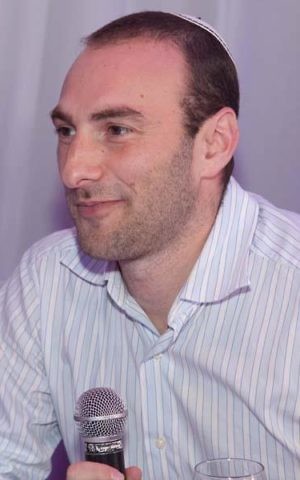The Aliyah 100 List
Our extensive list of flag bearers who shape the state of Israel and made a significant contribution
One hundred Jews who moved from Britain to help shape the modern state of Israel are celebrated here in a unique initiative marking the centenary of the Balfour Declaration.
The Jewish News-Jewish Agency Aliyah 100, in association with UJIA, highlights the far-reaching impact of individuals – household names and not – who have had a powerful impact from politics to philanthropy and media to the military.
Our 70-strong list of olim who are still alive is headed by pioneering educator and social activist Alice Shalvi, followed by former Mossad chief Efraim Halevy and former Ambassador to the UK Daniel Taub. Chaim Weizmann, Israel’s first president who lobbied for the Balfour Declaration, and Abba Eban, considered the greatest PM Israel never had, top the 30-strong list of those who have passed away.
Get The Jewish News Daily Edition by email and never miss our top stories Free Sign Up
Additional research by Ellie Rudee
READ MORE:
- Top 30 posthumous: Gone, but never forgotten…
- A daunting task: The Aliyah 100
- OPINION – Mark Regev: Reflecting on Balfour’s aims, 100 years on
70. The Portnoy Brothers (Sruli & Mendy)
The Manchester-born Portnoy Brothers have combined the Israeli charts’ affinity for reinvigorated liturgical motifs with a soft-rock core. Sons of a conductor-cum-rabbi, the pair began playing together as teenagers and, now based in Jerusalem, crowdfunded their 2016 debut album. They performed on the Gaza border during Operation Pillar of Defence and released an evocative cover of Yerushalayim Shel Zahav on Jerusalem Day this year, becoming regulars on the gig circuits of Jerusalem and Tel Aviv. They performed in London last week for ShabbatUK.

69. Fiona (Refson) Darmon
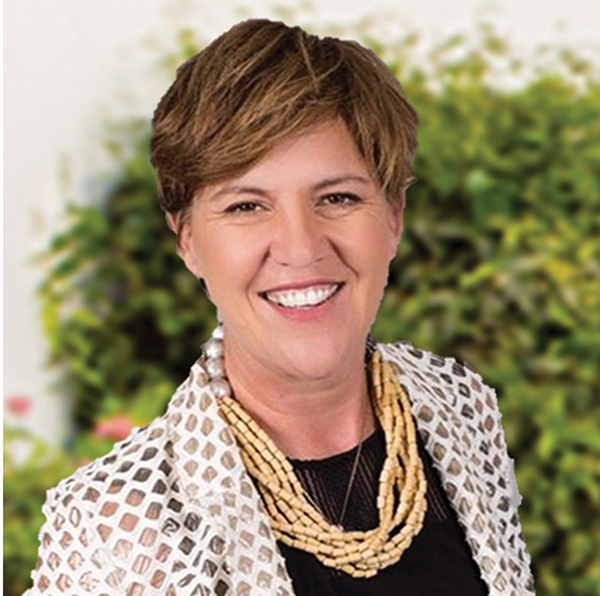
Fiona Darmon is a partner and chief operating officer at Jerusalem Venture Partners, the highly respected investment firm founded by recent Labour Party leadership candidate Erel Margalit. Throughout her career, Darmon has been a leading player in attracting international interest in the Israeli start-up ecosystem. She traverses the globe and welcomes overseas delegations with the goal of strengthening Israeli companies’ global ties. One of only a handful of female partners across all of Israel’s leading venture capital firms, central to Darmon’s ethos is the ambition of incorporating under-represented groups, from women to Charedim, into Israel’s burgeoning and dynamic but somewhat homogeneous hi-tech scene.
68. Matthew Kalman
The eclectic journalistic endeavours of Cambridge graduate and former UJS President Matthew Kalman have ranged from his seven-year coverage of the James Ossuary trial, during which an Israeli antiquarian was alleged to have forged the burial box of Jesus’ brother James, to his 2013 co-authored book The Murder of Yasser Arafat, an insightful account into the many nuances of internal Palestinian politics. A much sought-after freelancer whose articles have appeared in an impressive roster of English-language publications, Kalman briefly held the editorship of the Jerusalem Report magazine in 2012 and has spearheaded Times of Israel Presents, a Jerusalem-based lecture series gathering cultural luminaries from Israel and right across the Jewish world.
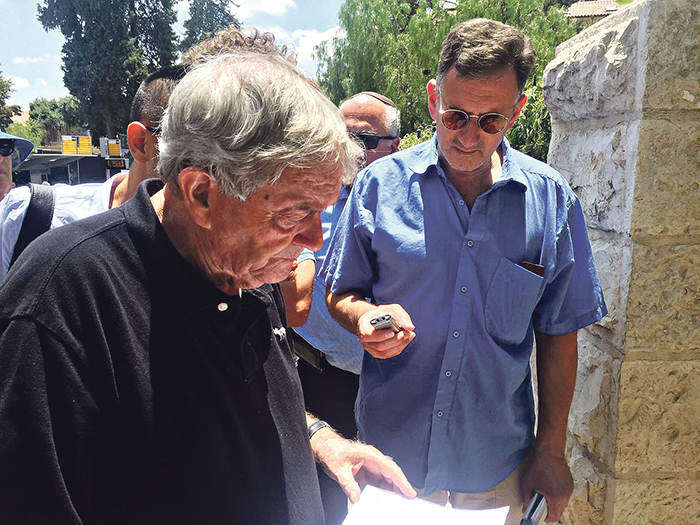
67. Miriam Feldmann Kaye
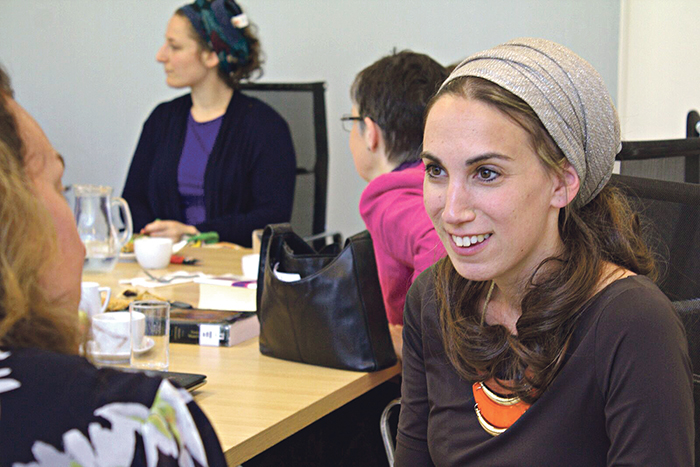
Dr Miriam Feldmann Kaye is an up-and-coming Hebrew University academic specialising in comparative religion who has broadened the remit of her discipline far beyond the ivory towers of Mount Scopus to become a leading practitioner of interfaith dialogue in the Holy City. She studied in Cambridge and London before acquiring a PhD in Jewish Thought from the University of Haifa, and published her first book, Jewish Theology in a Postmodern Age, this year. Feldmann Kaye is also founding director of the Three Faiths Forum Middle East, which brings together Jews, Christians and Muslims to meet and develop thoughts on faith and identity.
66. Tamar Lazarus (Kosky)
Modi’in resident Tamar Lazarus is drector of development at IsraAID, Israel’s largest humanitarian aid agency and a source of perennial pride in the country, which coordinates sustainable development projects around the world as well as dispatches emergency response teams to disaster zones (for instance, the areas affected by Hurricane Harvey). Lazarus’ role was newly established to reflect her experience in local government in the UK and then in developing other Israeli NGOs, including The Abraham Fund, which strives for greater equality between Israel’s Jewish and Arab citizens, and Orr Shalom, a charity for at-risk youth where she worked after her aliyah in 2009.
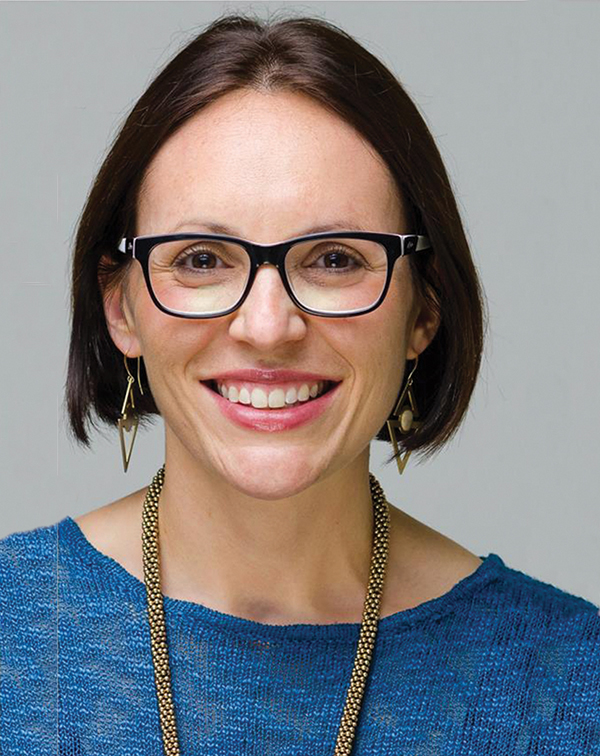
65. Zvi Schreiber
CEO of the Hong Kong-based shipping logistics platform Freightos, which brings a centuries-old field into the technological era, the indefatigable Zvi Schreiber (pictured above with Tony Blair), is a representative of Israel’s start-up ecosystem. Freightos is among five firms founded by Schreiber, which includes systems management firm Unicorn (later bought by software giant IBM), and web desktop service G.ho.st, which was run by a joint Palestinian-Israeli team from Ramallah and Jerusalem. The Cambridge and Imperial College graduate combined expertise with creativity in his novel Fizz, an alternative-reality journey through the history of physics.
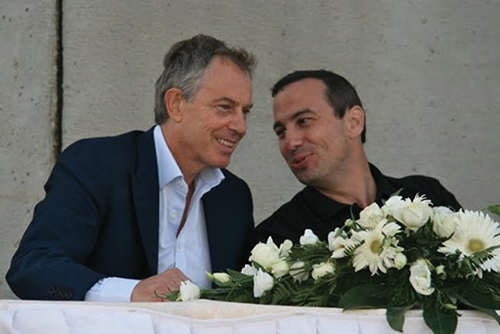
64. Jonathan Rynhold
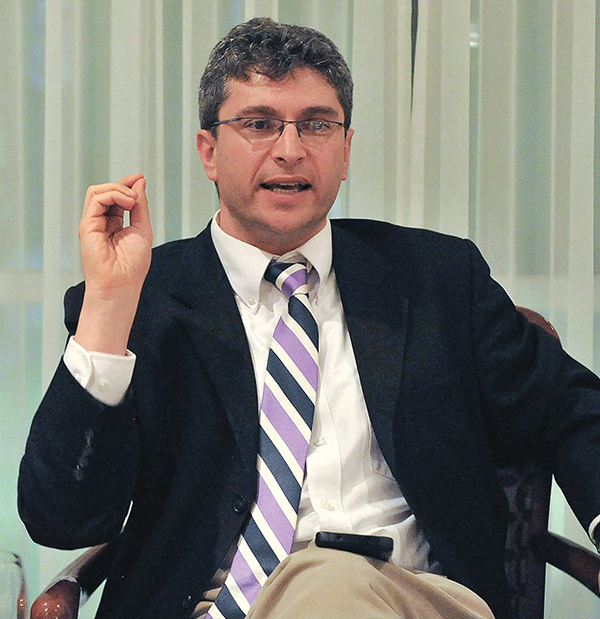
Professor Jonathan Rynhold is deputy head of the Political Science Department at Bar-Ilan University in Ramat Gan, specialising in US-Israeli relations and the Arab-Israeli peace process. An outstanding scholar whose views are in demand in the media, Rynhold has also been appointed by the Israeli Foreign Ministry as a strategic consultant working to counter potential boycotts of Israeli academic institutions. On this theme, his 2015 book about the impact of the Israeli-Palestinian conflict on the political culture of the American left won the Israeli Political Science Association’s Best book award.
63. Danni Franks
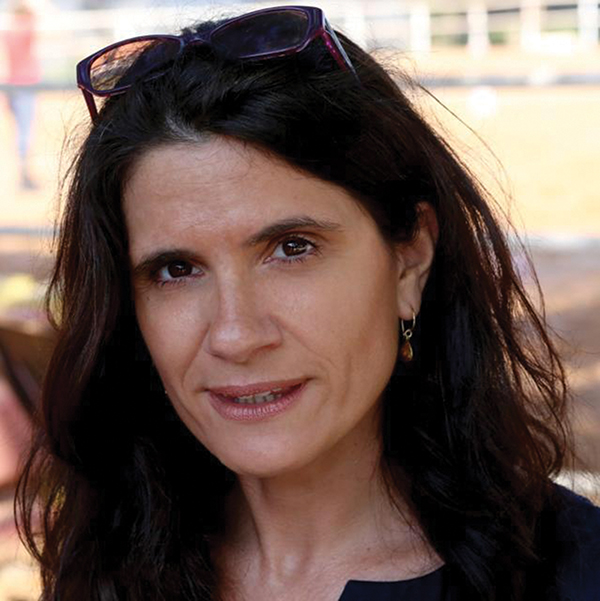
JFS and Bristol University alumna Danni Franks made aliyah in 2004 and three years later established MyIsrael, a platform designed to enable UK donors to identify and fund smaller or more specialised Israeli non-governmental organisations. Franks’ methodology has rejuvenated aging tsedakah rituals and has succeeded in distributing millions to charities working in fields hitherto beyond the radar of the community’s philanthropic behemoths, from rape crisis centres and food banks to therapeutic horse-riding and subsidised dental care for the underprivileged. Franks, a former Sky TV and Disney executive, possesses a rare ability to bring all sorts of contributors on board, from businesspeople to eager schoolchildren, and was named by Ha’aretz among Israel’s 66 most influential women.
62. Joshua Hantman
Wembley-born Joshua Hantman spent a gap year in Israel with FZY, and after degrees in Middle Eastern Studies at Oxford and Harvard made aliyah and served in a communications role during his IDF service, a well-trodden route towards the gates of the Israeli political establishment. Hantman went on to work in the Prime Minister’s Office on the staff of influential advisers Ron Dermer and Mark Regev (now ambassadors to the US and UK respectively), as well as with Ehud Barak during his tenure as Defence Minister. Currently working as an independent strategic consultant, it appears 32-year-old Hantman’s return to frontline politics could be imminent.
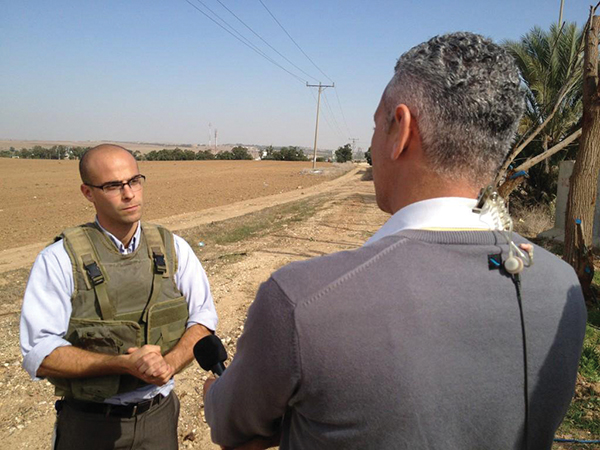
61. James Grant-Rosenhead
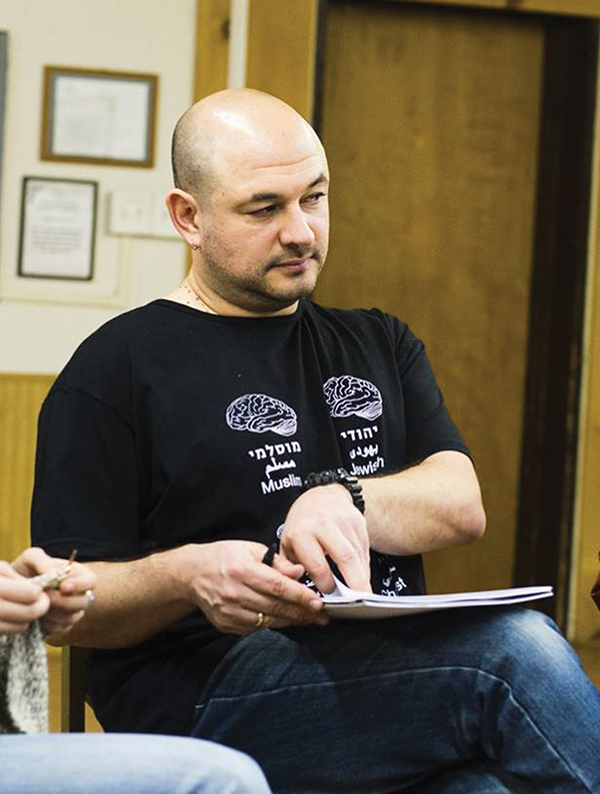
Born in Leeds, James Grant-Rosenhead grew up in Habonim Dror and has devoted his adult life to hagshama: the realisation of the youth movement’s socialist-Zionist values. The self-confessed ‘revolutionary’ has changed the meaning of pioneering Zionism in the 21st century, establishing Mishol, an irbutz (urban kibbutz) in Nazareth Illit which is the largest of its kind in Israel, based on the belief that communal living in an urban framework can affect social change amongst a broader population. Grant-Rosenhead’s connections to Habonim Dror have not withered and he is currently serving as the movement’s shaliach (emissary) in New York.
60. Karen Kaufman
During seven years as Head of Communications at the British Embassy in Tel Aviv, Karen Kaufman played a direct role in bolstering UK-Israel relations over the past decade. Kaufman’s remit extended to organising, and reporting on, British prime ministers’ and cabinet members’ visits to the country, and her impressive communications experience led to her appointment as media and external relations adviser for the Office of the Quartet Representative – aka Tony Blair. The Bnei Akiva and Hasmonean graduate, who made aliyah aged 19 and studied Politics at Tel Aviv University, now fulfils a similar role at the Initiative for the Middle East, Blair’s own institute for realising peace and cooperation in the region.
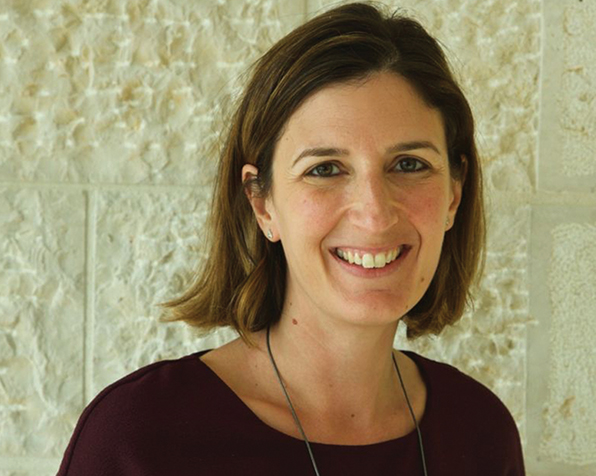
59. Eli Ovits
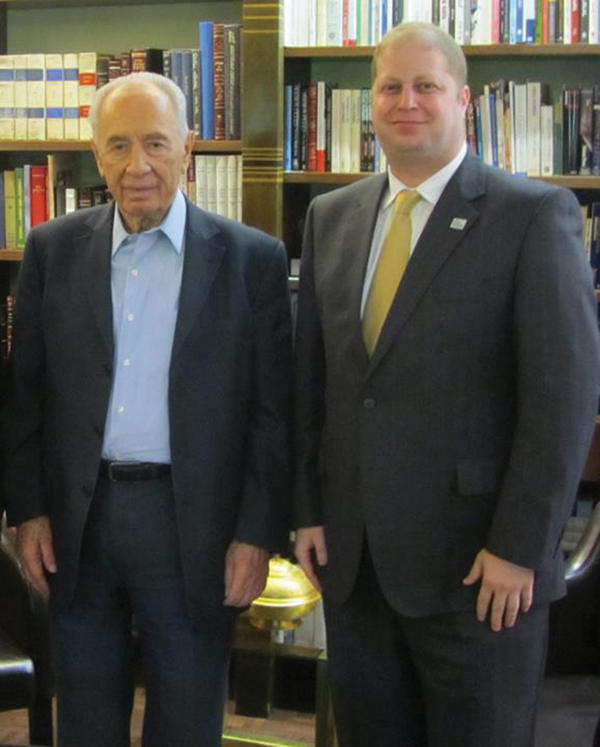
Eli Ovits made aliyah in 2003 and has built a reputation as a presentation and communications expert. He serves as a reserve Captain in the IDF Spokesperson’s Unit, and is also chief operating officer at identity-building film-making enterprise Jerusalem U. Ovits is chief executive of Limmud, which is widely heralded as the UK community’s seminal contribution to worldwide Jewry. He develops Limmud’s infrastructure and trains volunteers in some 43 countries, as well as centralises its various projects and programmes in Israel. Previously director of communications at Washington-based advocacy organisation The Israel Project, Ovits has harnessed his expertise to strengthen ties between Israel and the Jewish world.
58. Miriam Winston Jacobs
ince making aliyah in 2008, Miriam Jacobs has been an impeccable advocate for social action in her professional and personal life. A graduate of Noam, the Masorti youth movement, Jacobs transferred seamlessly from her Middle Eastern Studies degree at Manchester University to her work in peace-building projects under the auspices of the Peres Centre for Peace and latterly the Adam Institute for Democracy and Peace, where she manages the Women, Politics and Peace-Building project aimed at training grass-roots activists. She is also a volunteer city co-ordinator for Women Wage Peace, one of the fastest-growing popular movements calling for a two-state solution to the Israeli-Palestinian conflict, and leads an egalitarian partnership minyan in her home city of Modi’in.
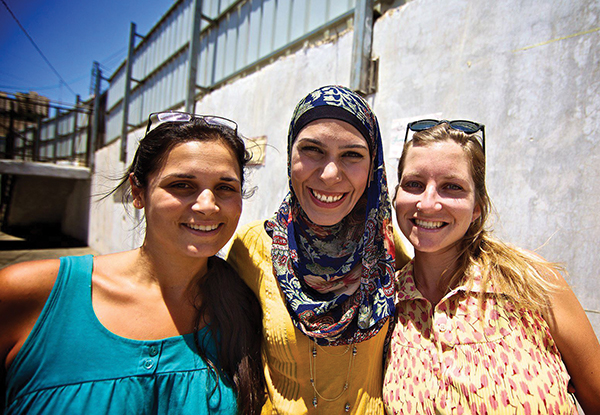
57. Danny Chinn
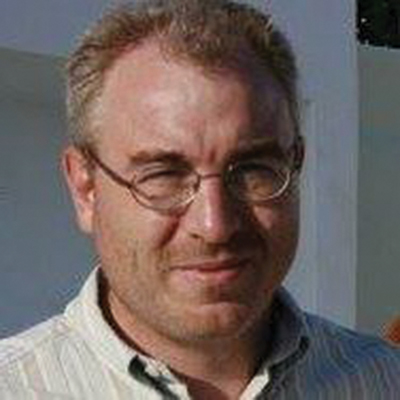
Danny Chinn began his legal studies at Oxford and, before making aliyah, served as RSY-Netzer’s mazkir. These twin interests – the law, and Reform community-building – have continued to characterise Chinn’s life in Israel, where he worked for 12 years at the prestigious commercial law firm Herzog, Fox & Neeman before assuming his current role at Tulchinsky Stern & Co. He is chair of Jerusalem’s Kol HaNeshama Ssynagogue, one of the Israeli Reform Movement’s most dynamic communities known for its innovation in prayer and exponential growth in recent years. On a national level, Chinn spearheaded the creation of HaSimcha SheBaLev, the Reform Movement’s machzor for the three pilgrim festivals.
56. Michael Freeman
Michael Freeman is the Counsellor for Civil Society at the Israeli Embassy in London, a complex and challenging role which encompasses liaising on Israel’s behalf with British NGOs, trades unions, and students, or, in his own words, ‘showing Israel how it really is’. Freeman demonstrated his diplomatic credentials during the Foreign Ministry’s arduous cadets’ course and as Deputy Ambassador in South Africa, a country where the BDS movement is regrettably gaining traction. A proud graduate of FZY, Freeman is the former Executive Director of the movement’s activities in Israel, taking overall responsibility for thousands of young Jews on short- and long-term programmes in the country.
55. Jeremy Seeff
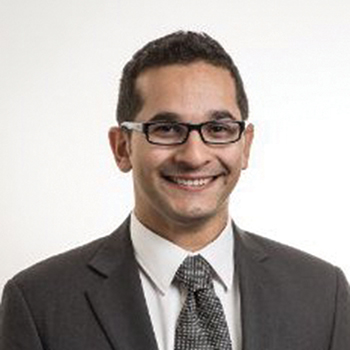
Two of the most defining features of modern, outward-looking and upwardly mobile Tel Aviv – its hi-tech boom and its vibrant LGBT community – intersect in Jeremy Seeff’s creation, LGBTech, a networking group targeting increased LGBT visibility in the world of entrepreneurship. The commercial lawyer also developed the Israeli Diversity Standard, a benchmark monitoring how far Israeli companies adhere to principles of inclusivity, with high-profile signatories including Intel and Microsoft. Despite only having made aliyah four years ago, Seeff’s impact has reached and empowered thousands and offers the potential for even further reaching change.
54. Alan Sacks
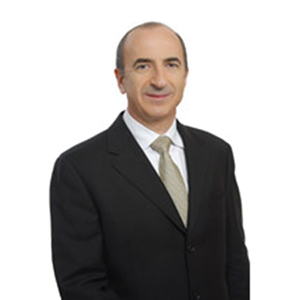
Cambridge-educated lawyer and current Jerusalemite Alan Sacks is a long-term partner at Herzog, Fox & Neeman and heads the firm’s international practice. Through his specialisations in corporate and financial law, Sacks has overseen and negotiated some of Israel’s largest commercial transactions, and his unparalleled knowledge of banking regulation has seen him involved in virtually every recent bank acquisition in Israel. A multitude of international publications and chambers of commerce recognise Sacks as their go-to man (Chambers Global considers him a ‘banking guru’) and he is known for authoring guides navigating foreign investors through their deals in Israel.
53. Michael Weingarten (Prof)
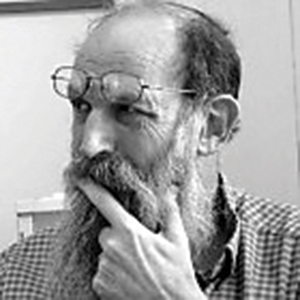
Professor Michael Weingarten, an internationally-renowned clinical physician and researcher, headed the new Tsfat branch of the Bar Ilan Medical School, an initiative conceived to supply the Galilee region with more qualified doctors and create a local hub of medical excellence, until retiring this year. An Oxford graduate who also taught at Tel Aviv University and McMaster University in Canada, Weingarten has written extensively on medically ethical responses to hunger strikes, a salient issue in the context of the Israeli-Palestinian conflict.
52. Calev Ben Dor
Londoner Calev Ben-Dor studied at Leeds and the LSE, and after making aliyah in 2005 has acquired extensive experience in the field of policy research. He is currently Director of Research at BICOM, the leading British think-tank focusing on Israel, and is also Deputy Editor of BICOM’s online journal Fathom. Ben-Dor previously worked in public affairs at the Israeli Embassy in London, and as an analyst at the Reut Institute and most recently at the Israeli Foreign Ministry. Consistently lauded by colleagues for his calmness under pressure and attention to detail, Ben-Dor is a regular blogger and in the past contributed a monthly column to Haaretz on Jewish thought.
51. Joel Levy (Rabbi)
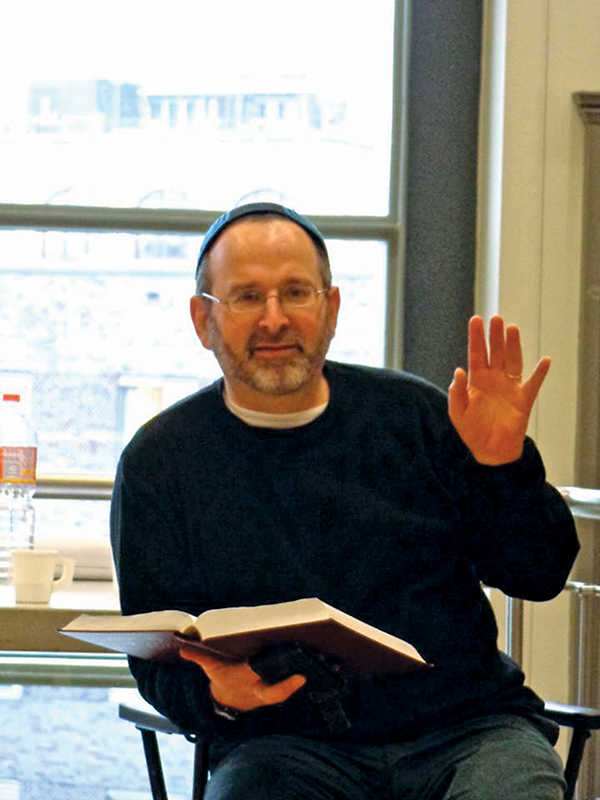
Rabbi Joel Levy is among the leading ideologues of Masorti Judaism not only in Israel but around the world. He is the Director of Jerusalem’s Conservative Yeshiva, which attracts students of all ages seeking to enrich their textual command in an egalitarian framework, and such is his force of character that even the briefest of encounters can inspire deep engagement with Masorti Judaism. Inevitably, Levy’s prominence lends him an important social and political voice on issues of religious pluralism, gender, and interfaith activity in Israel. His remaining connections to the UK community include educating Noam members and officiating one Shabbat per month at Edgware’s Kol Nefesh Masorti synagogue.
50. Trevor Asserson
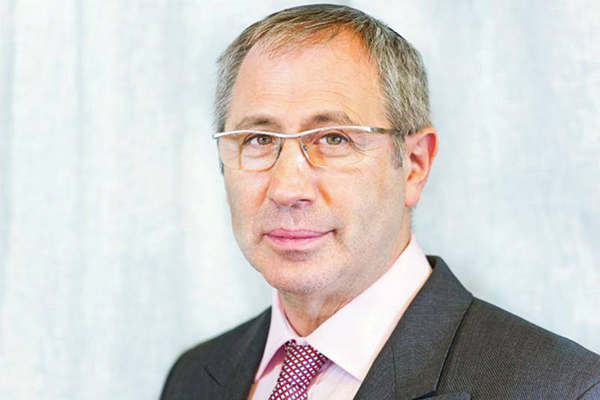
Lawyer Trevor Asserson has not only tackled one of the most pressing challenges facing olim – transferring one’s profession to new surroundings – he has worked tirelessly to help others to do the same by creating scores of jobs for new immigrants in the international law firm he founded. Asserson Law Offices, established after its founder with a ‘heavyweight reputation’ (Chambers) made aliyah in 2005, employs more than 40 people and allows lawyers registered overseas to continue to practise in their native country from its headquarters in Tel Aviv’s iconic Azrieli tower. ‘My firm is an English firm in every respect, except that it is located physically in Israel’, he told Israeli financial daily Globes.
49. Sefton Bergson
The ex-Bnei Akiva mazkir is a near-ubiquitous presence in Israel’s northern region, such is the quantity of projects Seftom Bergson has spearheaded in his role as UJIA Galil programme supervisor. British Jewry’s largest philanthropic organisation has strategically chosen to focus the bulk of its investment in the developing and culturally diverse area, and Bergson’s role is to drill his passion for the Zionist enterprise into implementing the UJIA’s extensive contributions on the ground.
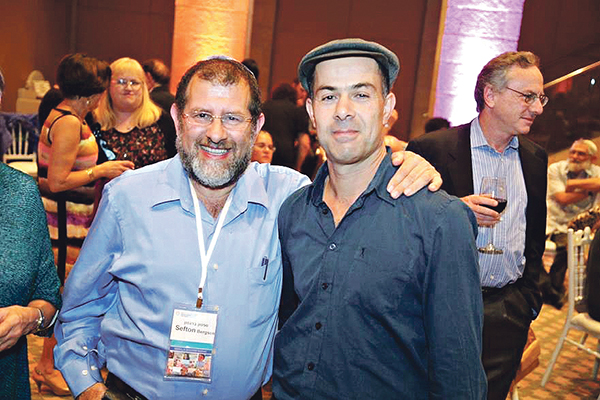
48. Gideon Sylvester
Rabbi, educator, and activist, Gideon Sylvester is employed by the United Synagogue as its rabbi in Israel, playing an invaluable pedagogical and pastoral role for gap year participants, yeshiva students, and school trip attendees. After his own eight years of yeshiva study, and before making aliyah in 2004, Sylvester served as rabbi at Radlett United Synagogue, whose membership doubled during his tenure. His role as Senior Rabbinic Educator for T’ruah – The Rabbinic Call for Human Rights reflected his ardent belief in the power of religious leadership to enact social change. He is now working on a PhD on the subject.
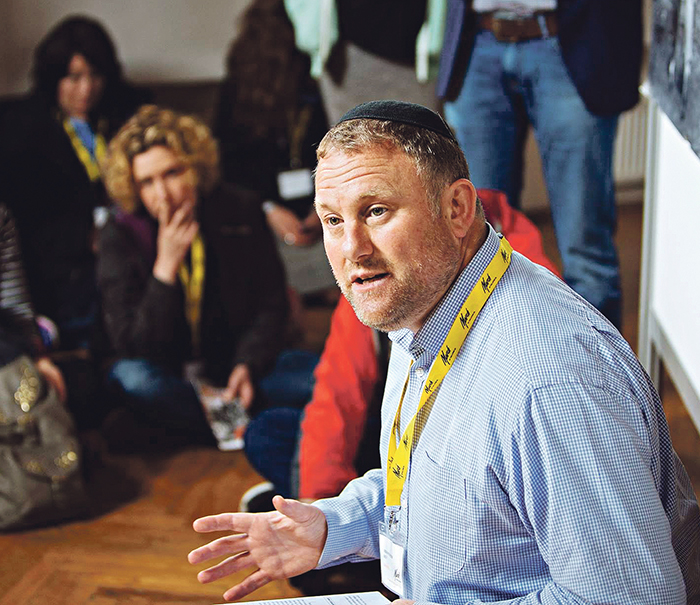
47. Daniel Sperber (Rabbi)
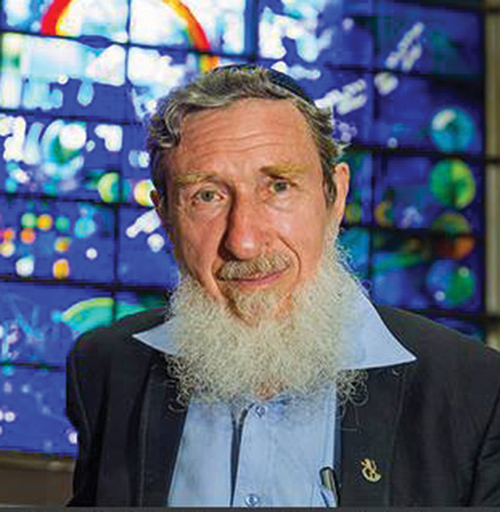
Born in 1940 in a Welsh castle that housed a temporary camp for German-Jewish refugee children, Rabbi Daniel Sperber is professor of Talmud at Bar-Ilan University and rabbi of the Menachem Zion Synagogue in the Old City of Jerusalem.His academic work, which led to an Israel Prize for Jewish Studies in 1992, has mostly concerned the origins and evolution of minhagim (Jewish customs), with side interests in the development of halacha, everyday life in the Talmudic era, and classical philology. As a consequence, some of Sperber’s views on halacha place him firmly in the liberal-Orthodox camp, particularly the prohibitions of women’s involvement in Jewish rituals.
46. Jacob Rowe (Prof)
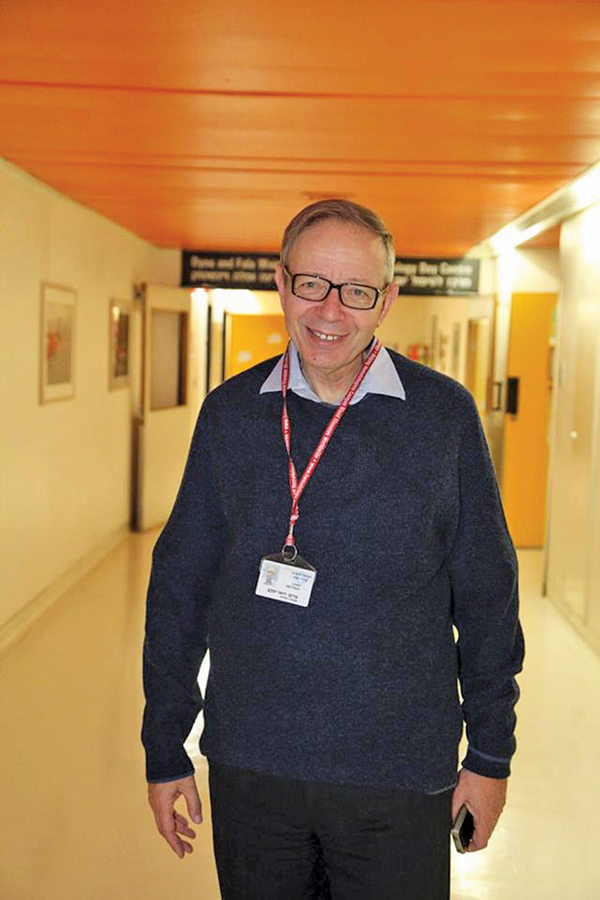
Jacob Rowe is a Professor Emeritus at the Technion and Director of Haematology at the Shaare Zedek Medical Centre in Jerusalem.
Rowe graduated from University College, London, and practised primarily in the US before making aliyah in 1992, eventually settling in Jerusalem.
An accomplished leader, Rowe’s department has grown and flourished under his stewardship. His contributions to the treatment of leukaemia patients have had a global impact, and have been recognised through numerous awards, including the Honorary Doctorate he gained from the University of Gothenburg. A prodigious writer, Rowe has published over 350 articles, reviews, and book chapters.
45. Colin Bulka
Few can rival the consistency and longevity of Colin Bulka’s achievements in the youth movement world. He oversaw the transformation of RSY-Netzer from the youth branch of British Reform Judaism to a fully-fledged Zionist youth movement, then turned its gap year programme into an educationally enriching and ideologically transformative experience. He reached the apex of his professional journey with his appointment as Director of the Machon L’Madrichim, a Jewish Agency offshoot predating Israel’s independence, which trains hundreds of the Jewish world’s most committed youth leaders.
44. Asher Cailingold
Asher Cailingold made aliyah in 1957 after six successful years as Bnei Akiva mazkir, having brought the movement’s British branch into the national mainstream. The death of his sister, Esther, who fell defending Jerusalem’s Old City in the War of Independence, formed the subject of his 2000 biography, An Unlikely Heroine. Cailingold has stated that the tragedy imbued within him a desire to help others overcome their own traumas, leading him to train as a social worker and direct Israel’s first community centre in Haifa. He devoted much of his life to shlichut, representing the Jewish Agency in the UK and USA, and having retired from the body’s aliyah division he volunteers as a VIP guide for Yad Vashem.
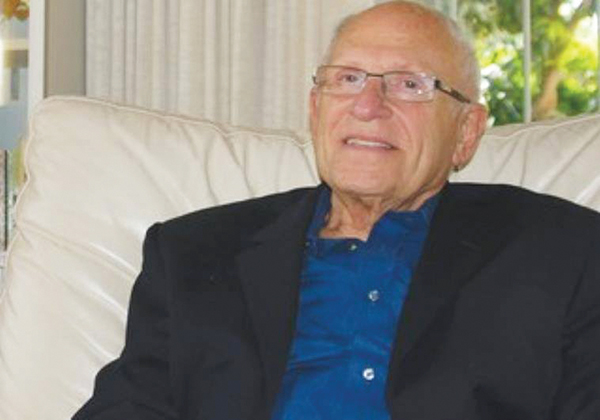
43. Zara Pomson-Provisor
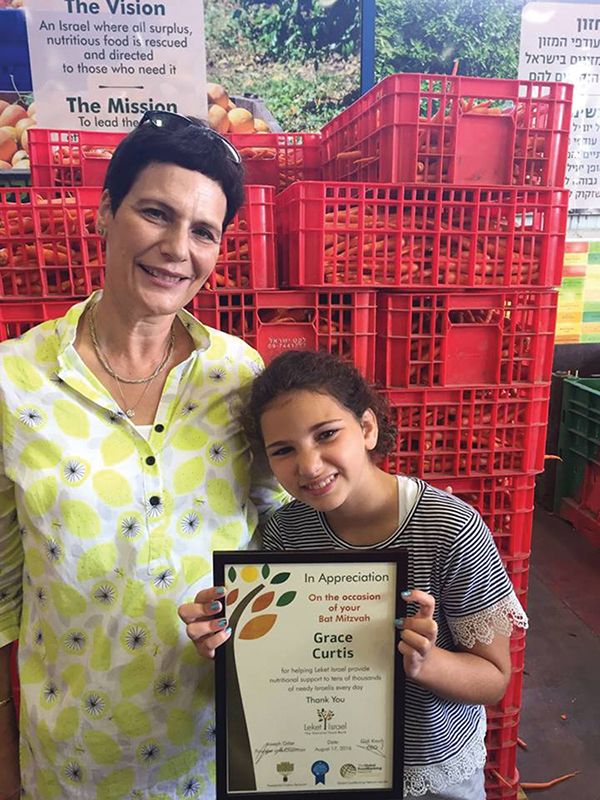
Food poverty is as pertinent a talking point in Israel as it is in the UK: Zara Pomson-Provisor, who studied at the LSE and made aliyah in the 1980s, has been a leading volunteer and subsequently staff member at Leket Israel, the country’s national food bank, which feeds 175,000 Israelis per week and works alongside 200 non-governmental organisations. She founded and directed the Sandwiches for Kids project, which ensured that 9,000 children received an otherwise inaccessible nutritious daily meal to help them through their studies, and is now the organisation’s UK development coordinator, working to create connections between Leket and its British supporters.
42. Toby Greene
Political analyst Toby Greene is a post-Doctoral Fellow in International Relations at the Hebrew University, specialising in Middle East policy. Greene was previously director of research for BICOM, and while at the think tank was renowned for an ability to bring detailed and pertinent analysis into the public realm, producing almost instantaneous reports on the latest political developments. A former FZY mazkir, Greene studied philosophy and theology at Cambridge and compiled his PhD at UCL on British policy-making in Israel-Palestine after 9/11, on which he published a book in 2013. The Modi’in resident has authored numerous academic articles as well as op-eds in the mainstream media, allowing any observer of Middle Eastern politics to profit from his sharp insight.
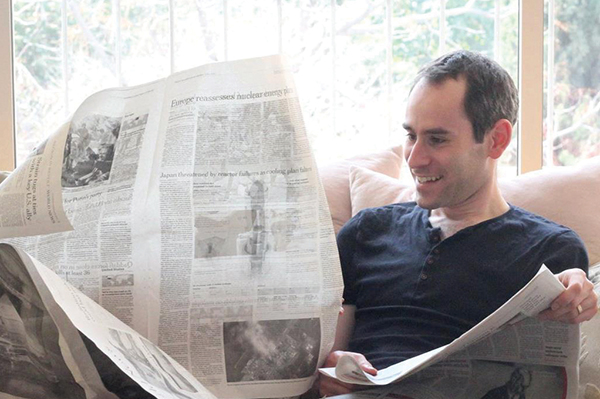
41. Steve Israel
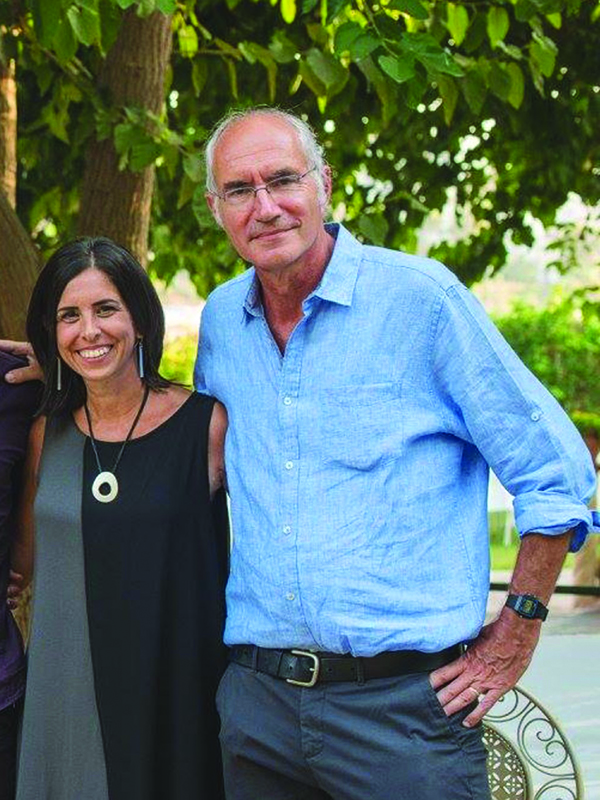
Literally and metaphorically, Steve Israel is a towering presence among Jewish informal educators. The Oxford and Habonim graduate has taught for decades at the Machon, where his consistent ability to frame the meaning of Jewish peoplehood in terms relevant to young people has had a transformative impact on generations of future communal leaders. His work with Central and Eastern European communities has shaped the Jewish and Zionist identity of the post-communist generation: Israel is the educational director of the much-lauded Szarvas summer camp in Hungary, and is often spotted at Limmud directing the Matara programme for students from the region.
40. Doreen Gainsford
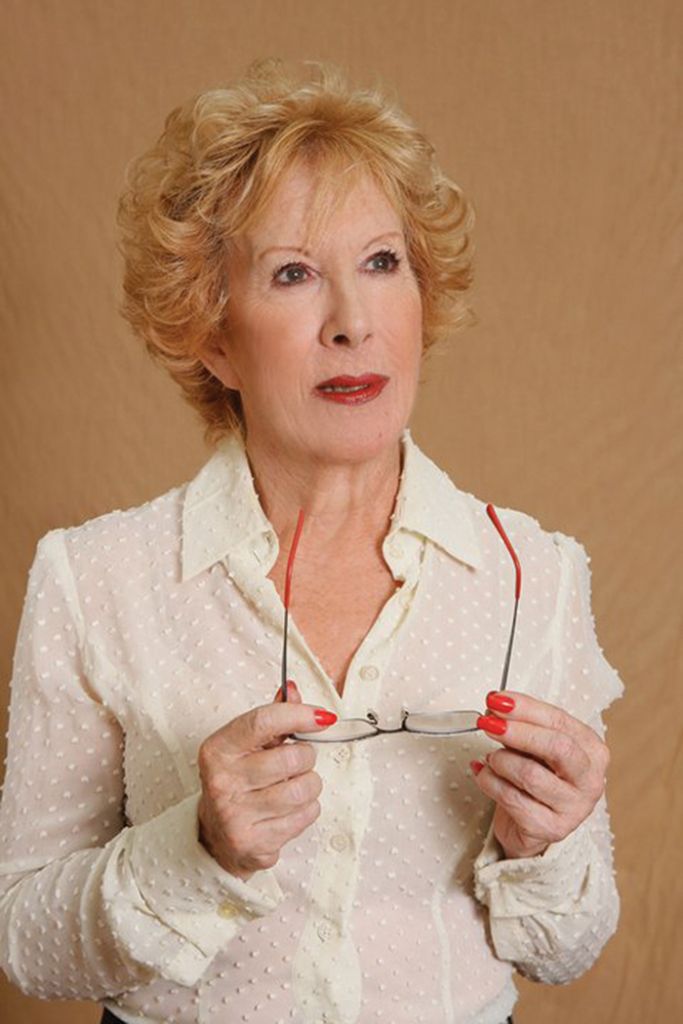
Octogenarian Doreen Gainsford lives in Herzliya Pituach, and can boast a lifetime’s worth of accomplishments in enacting social change in Israel and across the Jewish world. In the 1970s, she led a group of British women campaigners on behalf of Soviet Jewry, named ‘the 35s’ due to their average age. In Israel, she exploited her training as a fashion designer to establish Mini Gifts, an organisation to help Ethiopian women design trinkets for international sale while working from home.
Gainsford mobilised support for Israel via the advocacy-focused Israel Action Centre, and has latterly turned to marketing flowers produced by struggling farmers in Israel’s conflict-ridden south.
39. Richard Pater
Richard Pater is Director of BICOM in Israel, having taken overall responsibility for more than 70 international delegations of politicians, journalists, and other opinion-shapers. The Manchester graduate made aliyah in 1999 and served in the IDF as a tank commander during the Second Intifada. His access to the IDF top brass supplies British journalists with first-hand insights from army sources during times of conflict, and he is able to ensure that key military figures internalise the importance of engaging with the foreign media. Pater previously worked in the foreign press branch of the Prime Minister’s Office during the Second Lebanon War.
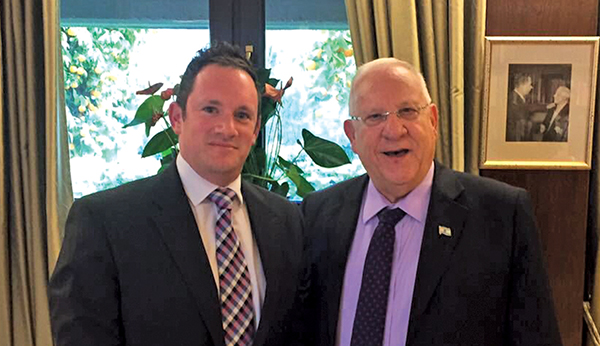
38. Neville Lamdan (Mandel)
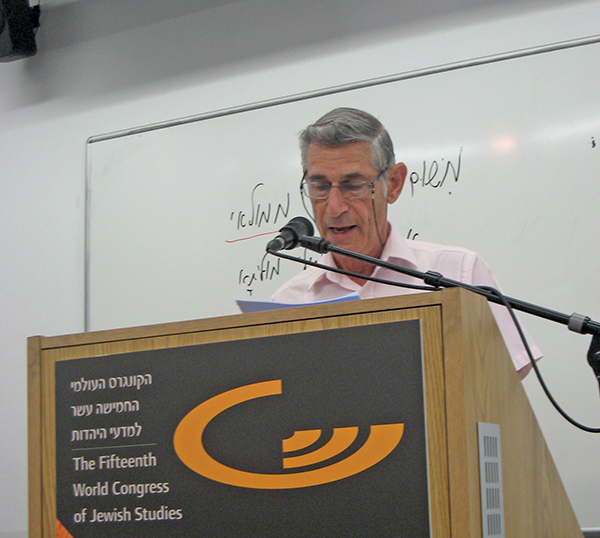
A career at the British Foreign Office wasn’t enough to satisfy ambitious Glaswegian Neville Lamdan, who, after being posted to the UK embassy in Tel Aviv in 1967, took Israeli citizenship and worked his way through the ranks in his adopted home’s diplomatic corps. He represented Israel in Beirut during the 1982 war, worked to normalise relations with Egypt, was a delegate to the US Congress and served as Israel’s ambassador to the UN in Geneva. In 2000 Lamdan was appointed ambassador to the Vatican, and was later named a Papal Knight by John Paul II for securing the removal of Palestinian terrorists from Bethlehem’s Church of the Nativity during the Second Intifada.
37. Charlotte Halle
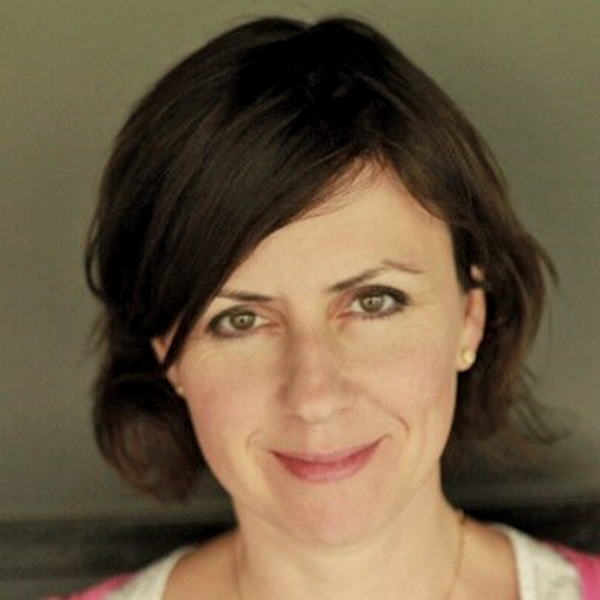
Charlotte Hallé is the International Director at Haaretz, having previously replaced fellow Brit David Landau to become the newspaper’s second English-language editor. Hallé’s tenure has broadened the depth and breadth of Haaretz’s English-language coverage, turning its website into a must-read for followers of Israeli current affairs and enabling Israel’s leading liberal mouthpiece to reach new audiences. Above and beyond Hallé’s journalistic acumen, her mission has necessitated skilful strategic management of the publication’s content in order to ensure its relevance in an era of alternative news sources. During Hallé’s years as a staff journalist, the RSY-Netzer graduate compiled a column known as ‘Anglo File’, devoted to covering English-speaking communities in Israel.
36. Removed upon request
35. Shuli Natan
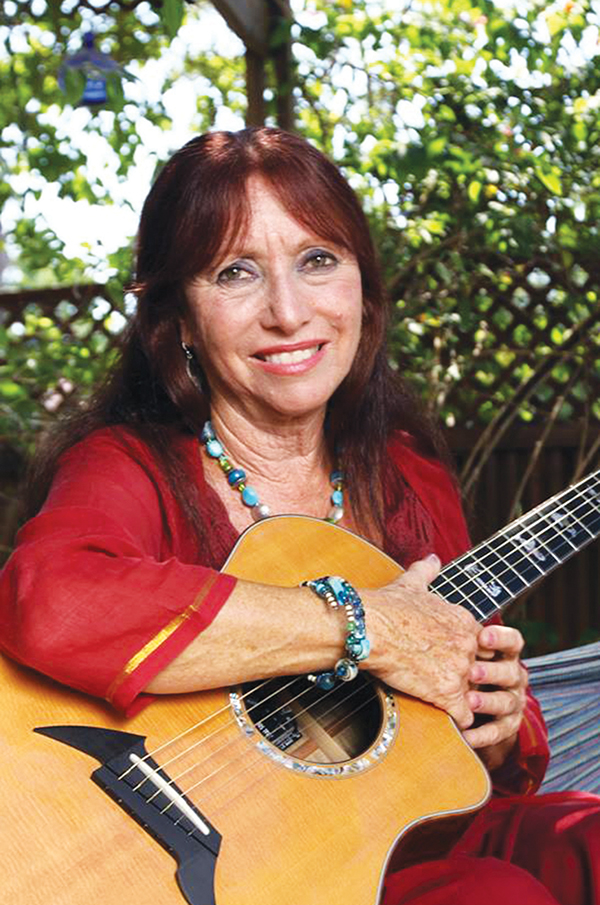
The Six-Day War and the Israeli takeover of Jerusalem’s Old City were seminal moments in the young state’s self-valorisation, and the symbolism of the return of Jewish sovereignty to the holy sites was best encapsulated by Shuli Natan’s rendition of Naomi Shemer’s poem Yerushalayim Shel Zahav (Jerusalem of Gold).
Natan performed the song in public for the first time as a 20-year-old soldier in May 1967.
Despite the passage of 50 years and the mixed views held by the public about the war’s outcome, Natan’s voice remains a staple of the Israeli airwaves.
34. Mike Prashker
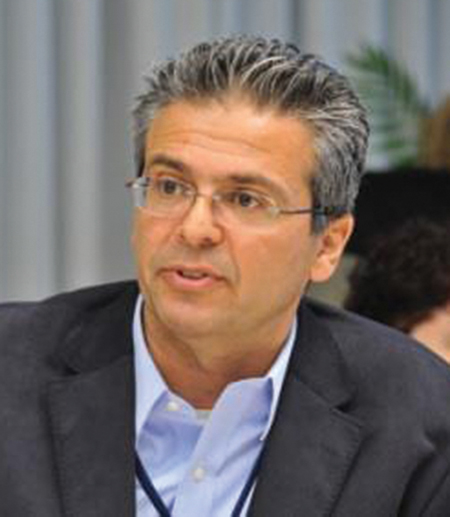
Mike Prashker is an entrepreneur and a visionary: he seeks to advance the concept of shared citizenship among Israel’s 8 million inhabitants, and has devoted his career to realising this goal. Merchavim, the body he founded and directed for 16 years, aims to bring together representatives of different communities – Jews and Arabs, religious and secular, and many other dichotomised pairs – in order to make Israel into a more cohesive society.
Energetic, charming, and often provocative, lying beyond Prashker’s extroverted exterior is a supple and perspicacious mind: he is currently a strategic adviser for the Ted Arison Family Foundation, while continuing to steer Merchavim as a member of its board of directors.
33. Ashley Perry
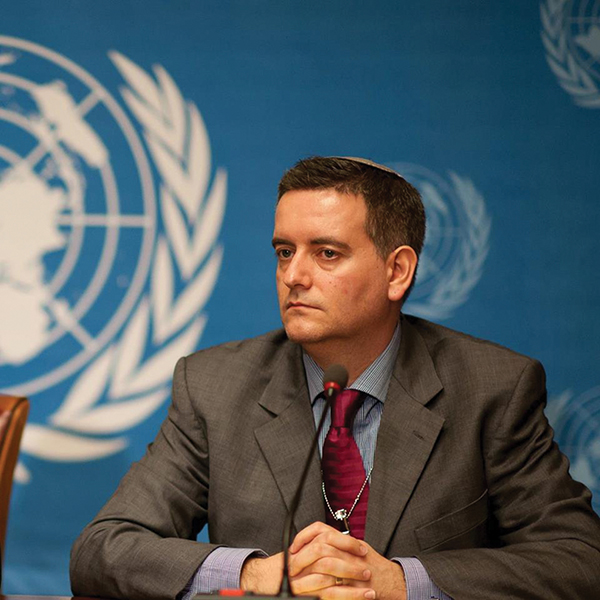
In 2015, the Spanish Parliament approved legislation permitting Jews who could trace descent for the 1492 expulsion to claim Spanish citizenship. This watershed moment was music to the ears of Ashley Perry, a campaigner who founded Reconectar, which strives to ensure that Sephardi historical memory attains due recognition. Perry, a seasoned political strategist, advised the Knesset on reaching out to the descendants of ‘lost’ Jews: those forcibly converted during the Inquisition period. The Bnei Akiva, UCL and IDC Herzliya alumnus, who grew up in London’s Sephardi community, has been on the campaign team for the Yisrael Beytenu political party and advised the Foreign Ministry on numerous issues.
32. Judith Sacks
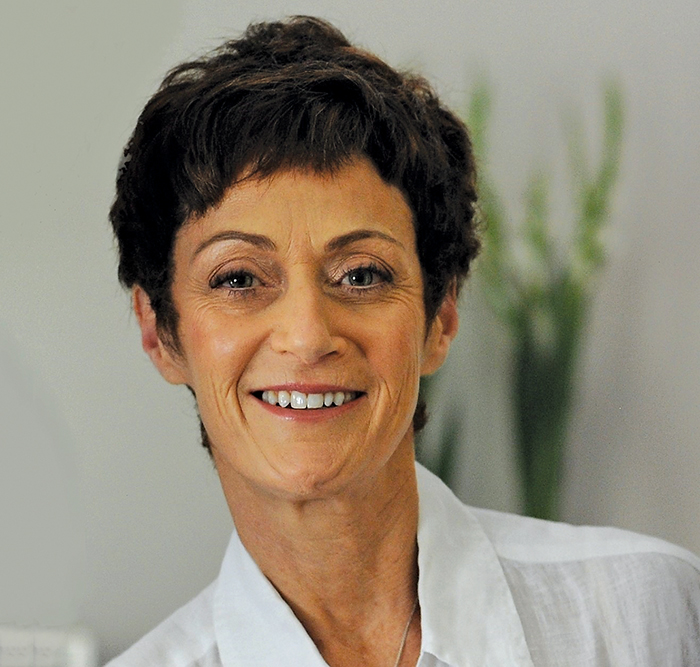
Judith Sacks heads the Jerusalem Women’s Committee of ALEH, an organisation working with hundreds of disabled children around Israel to help them flourish in education and realise their potential. ALEH was established in 1982, one year before the Cardiff-born Bnei Akiva graduate made aliyah, by a group of Israeli parents frustrated by the lack of existing opportunities for their children. Sacks’ involvement as a fundraiser has led to an injection of millions of dollars in donations, culminating in the construction of four state-of-the-art residential centres. A keen runner, Sacks has also participated in the Jerusalem marathon, and her activism was recognised at state level with the award of a Presidential prize for volunteering in 2003.
31. Sarah Bernstein
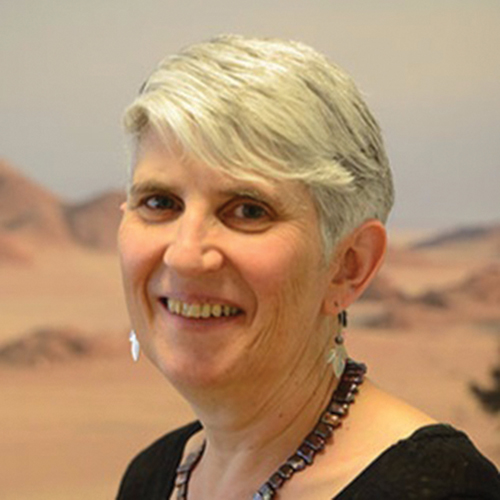
Sarah Bernstein is the executive director of the Rossing Centre for Education and Dialogue, a leading interfaith initiative in Jerusalem that runs programmes for 4,000 people each year. She is driven by an ardent belief that only through mutual understanding and conversation can prophetic visions of social justice and peace be realised, and her leadership on interfaith issues has taken her to numerous international platforms. She is ready to tackle controversial issues and is a pioneer in encouraging the Israeli education system to embrace hitherto unexplored yet vitally important aspects of cross-cultural relations.
30. Elaine Hoter (Dr)
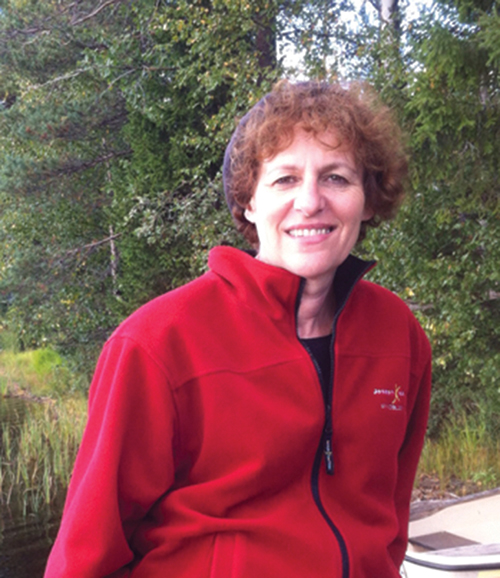
Step into any classroom, museum, or summer camp today and the first computer screen you’ll encounter won’t be far away, such is the influence pedagogues have ascribed to the use of technology in education. Yet when Dr Elaine Hoter set up Israel’s first online teacher training course in 1995, her innovative ideas were far from the mainstream, and Hoter has subsequently revolutionised teachers’ understanding of once-mysterious technological tools. After the death of her son Gavriel in a terror attack in 2002, she established the Centre for Technology and Multiculturalism, using the internet to bridge transnational gaps and erode misunderstandings. Although Hoter resides in the remote Golan Heights, distance is no obstacle – of course, much of her teaching is transmitted through online platforms.
29. Michael Dickson
As StandWithUs Israel’s executive director, Michael Dickson has fundamentally altered Israel advocacy and brought the discipline into the social media age. StandWithUs disseminates cutting-edge online material in 18 languages, can reach more than 40 million Facebook users per week, and brings delegations to get to know the real Israel. Dickson oversees the StandWithUs fellowship, which bolsters public diplomacy skills among Israeli university students, giving JFS’ ex-informal education director an unparalleled degree of public prominence in Israel and leading to his nomination among 30 Israelis making a difference by Channel 10 show HaTzinur.
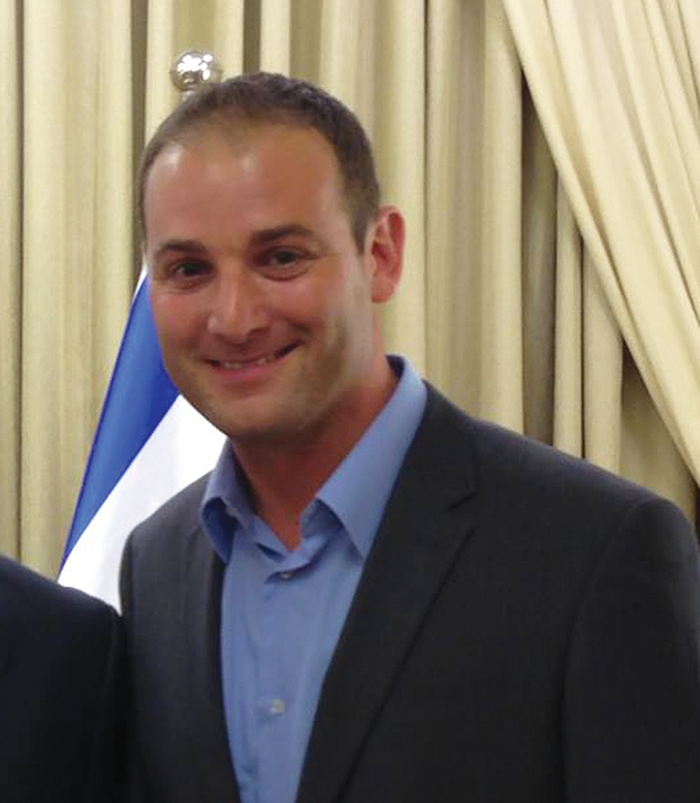
28. Anshel Pfeffer
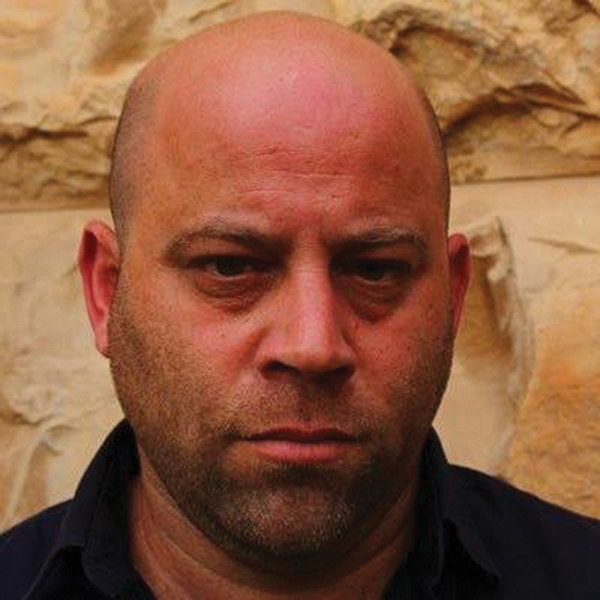
Iconoclastic journalist Anshel Pfeffer has been Ha’aretz’s Diaspora correspondent since 2007, authoring a weekly column named ‘Jerusalem and Babylon’.
His command of both Hebrew and English has allowed his columns to reach diverse audiences, and despite writing for a broadly liberal publication Pfeffer tends to eschew leftist dogmas, making his pieces impressive not only for their ambitious investigative scope but also for raising thought-provoking and innovative ideas.
Born in Manchester, Pfeffer made aliyah with his family aged eight, and began covering Charedi affairs for the local press after dropping out of yeshiva. His talents were spotted by Ha’aretz, The Jerusalem Post, and Makor Rishon, where he became news editor. His biography of Benjamin Netanyahu is scheduled for publication next year.
27. Micky Rosenfeld
Superintendent Micky Rosenfeld is the Israel Police Foreign Press Spokesman, meaning that his voice – or, increasingly, his tweets – are the first to reach the international media after any security incident. Finchley native Rosenfeld made aliyah aged 16, began his IDF service in the Givati infantry brigade, and then spent 10 years in the Border Police’s Counter-Terrorism force. His native English, combined with the extensive experience of international cooperation he had acquired during joint training exercises, made the Jerusalemite a natural candidate for the role.
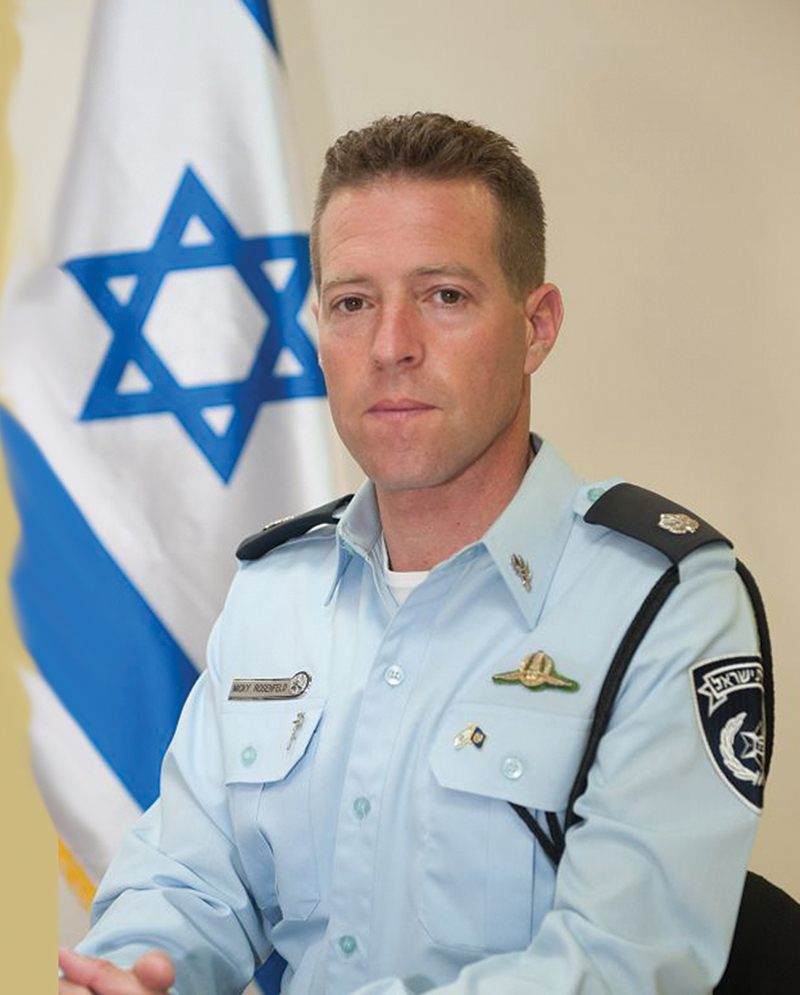
26. Brenda Katten
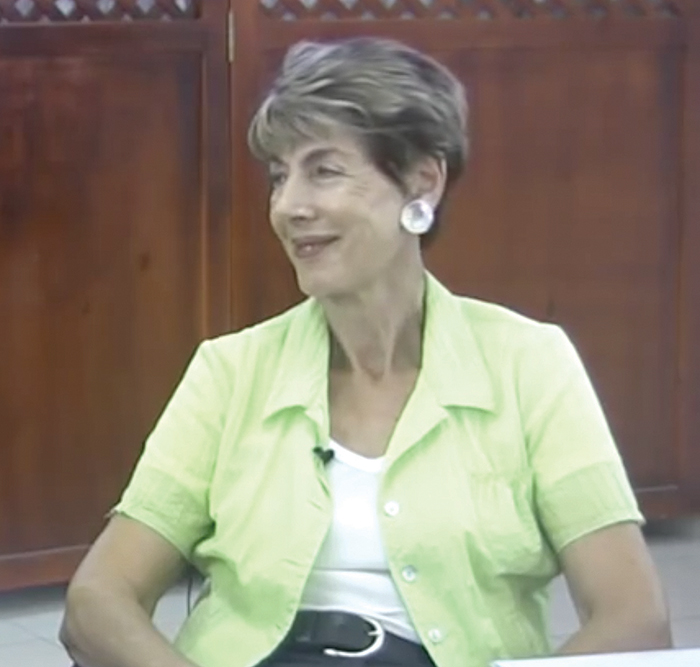
Lifelong Zionist activist Brenda Katten has an outstanding pedigree in mobilising grassroots support for Israel. Before making aliyah in 1998, the Londoner worked as an educational counsellor while serving as chair of British WIZO and the Zionist Federation. In Israel, she heads ESRA (the English Speaking Residents’ Association), which runs cultural events, lectures, volunteering courses, and meet-ups for Anglophone olim, and provides them with support and information to facilitate their transition into Israeli society. Katten’s monthly Jerusalem Post column, ‘Here and There’, focuses on the impact of global political trends on Jewish communities worldwide.
25. Alan Baker
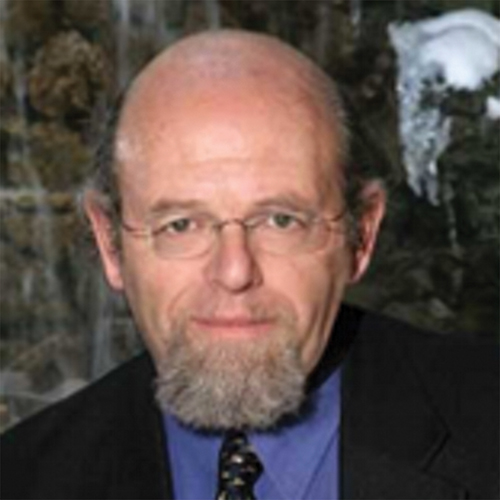
International law expert Alan Baker has devoted much of his energies to the thorny question of the judicial legitimacy of West Bank settlements, advising the Israeli government on the compatibility of its policies with UN and International Court of Justice statutes and precedent. He is currently a director at the Jerusalem Institute for Public Affairs, the strategic think-tank led by former Foreign Ministry head Dore Gold, and served as Ambassador to Canada from 2004-2008. The former UJS President joined the Military Prosecution following his service in an artillery division during the Yom Kippur War, and subsequently spent decades representing Israel in numerous international fora, including the drafting of its peace treaties with Egypt and Jordan.
24. Karen Alkalay-Gut
Israel’s foremost English-language poet, professor Karen Alkalay-Gut taught English Literature at Tel Aviv University for almost 40 years, and has brought Israeli literature to new audiences through her translations of Hebrew oeuvres. She specialises in the intersection between poetry and popular culture, and pioneered allegorical discourse on sex, gender, and sexuality, commenting in the title of one of her poems that ‘all poetry is revolutionary’. These are all prescient themes in Tel Aviv Journal, the online diary uploaded to her website daily. Born in London and educated in the USA, Alkalay-Gut founded and chaired the Israel Association of Writers in English, and is characterised as much by wit and humour as by her astonishing fecundity, with a list of publications numbering well into the hundreds.
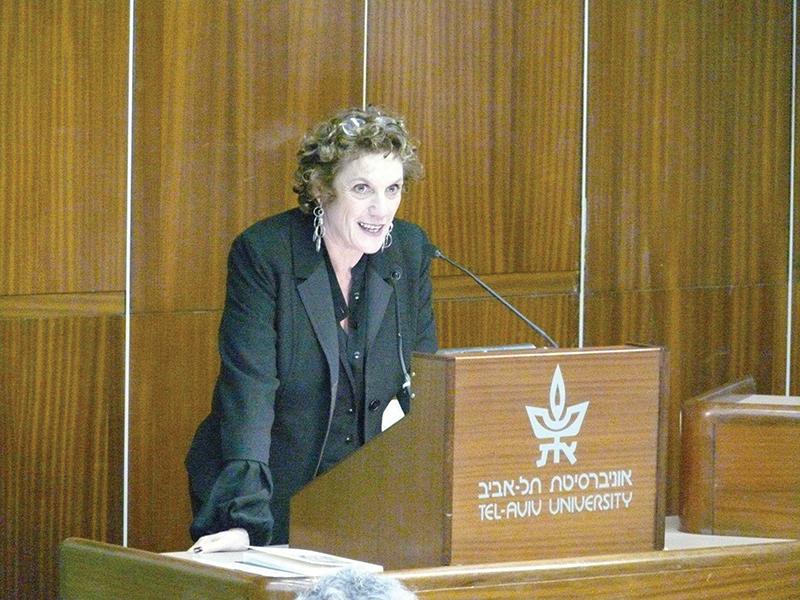
23. Yonatan Ariel
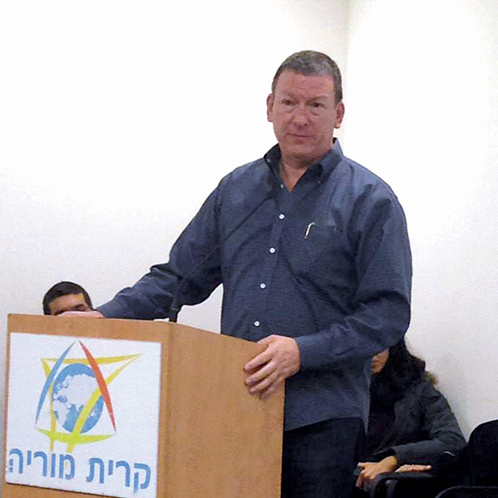
Yonatan Ariel is Executive Director of Makom, the educational subsidiary of the Jewish Agency, charged with nurturing ‘an alternative paradigm of Israel engagement’ in its work with Diaspora communities. Ariel has tailored Makom’s pioneering approach to meet the demands of the 21st-century Jewish psyche, promoting ‘Hugging and Wrestling with Israel’ as a slogan summarising the necessity of critically addressing Israel’s complexities to build relationships with the state.
22. Keren Hajioff (Major)
In 2009, 19-year-old new immigrant Keren Hajioff bolted from FZY Year Course to an IDF enlistment office having memorised answers to a series of expected questions, knowing that she wouldn’t be able to understand the Hebrew on the spot. Eight years on and speaking Hebrew with the confidence of a native-born Israeli, Hajioff can reflect on having cracked the toughest nut within the Israeli establishment, first serving as an artillery instructor and then becoming Head of Public Diplomacy in the Spokesperson’s Unit, recently being promoted to the rank of Major.
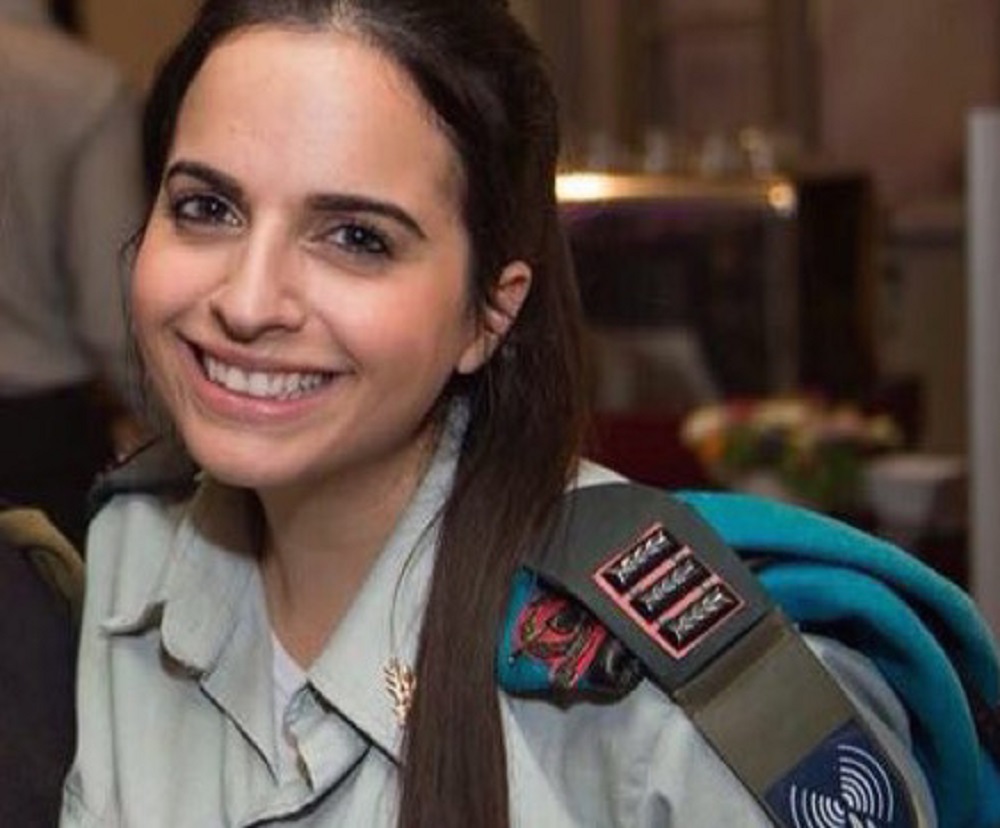
21. David Newman
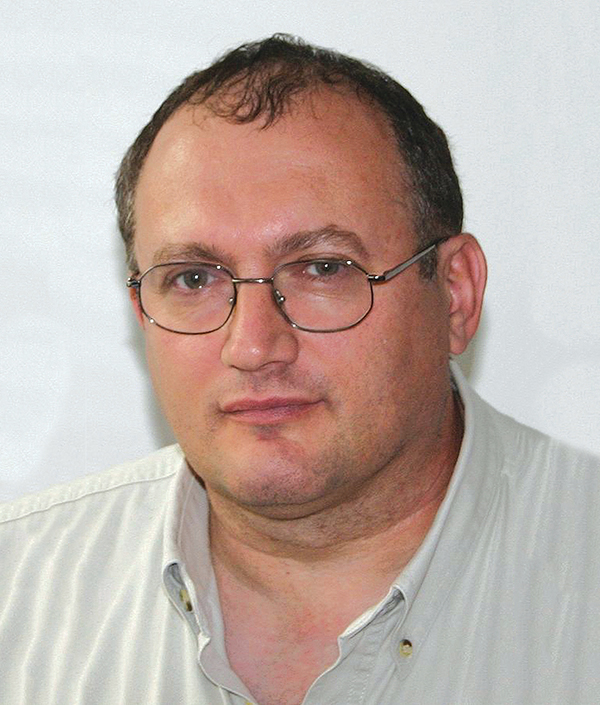
David Newman is Dean of the faculty of humanities and social sciences at Ben-Gurion University, having also founded the university’s department of politics and government. His research focuses on the significance of borders in geopolitics and specifically its impact on the Israeli-Palestinian conflict.
As a Jerusalem Post columnist, he opposes both politicisation in Israeli academia and boycotting Israeli universities: to that end, he has worked on numerous transnational colloquia, brought delegations to Israel, and in 2013 was awarded an OBE for services to UK-Israel relations.
Newman’s emotional connection to the UK is maintained via his ardent support from afar for Tottenham Hotspur.
20. Naomi Tsur
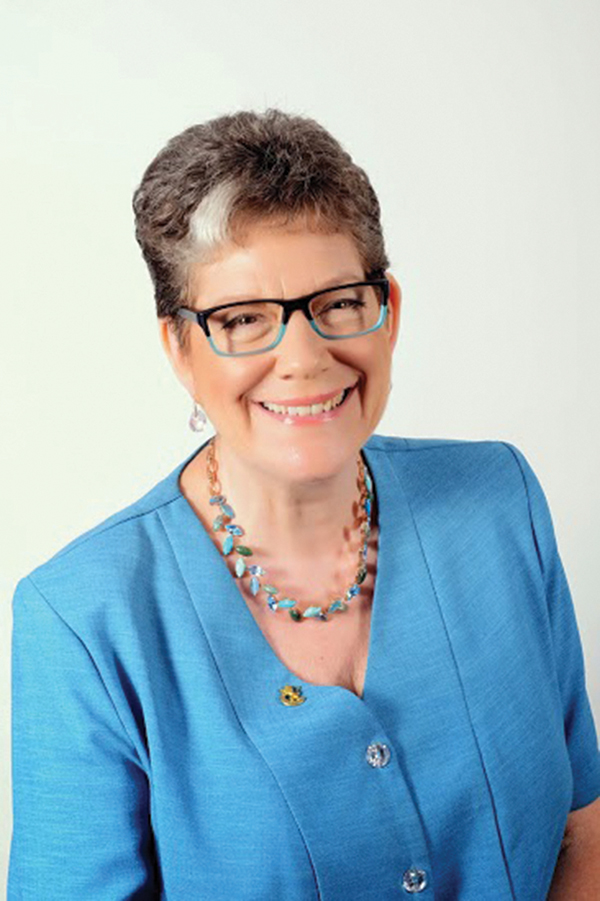
Bristol-born Naomi Tsur carved out a niche as one of Israel’s foremost environmentalists, before being appointed Jerusalem’s deputy mayor in 2008. By the end of her tenure in 2013, Tsur trebled the city’s recycling capacity, strategised reductions in house prices, oversaw the planting of 10,000 trees across the capital one Tu B’Shvat, and launched an international initiative to bring major centres of pilgrimage in line with the eco-friendly zeitgeist.
She has since founded the Jerusalem Green Fund in order to continue to lobby for sustainable public planning. Tsur’s academic background is in linguistics and she has edited a Hebrew-English dictionary, while during twelve years as head of the Society for the Protection of Nature in Israel she spearheaded the establishment of Israel’s first urban nature reserve.
19. Fay Morris
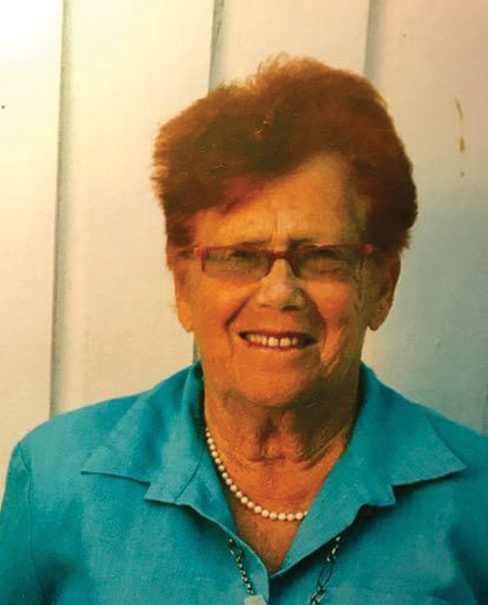
Eilat is nowadays synonymous with luxury hotels, wild nightlife and Red Sea snorkelling, but when Israeli forces conquered the southern Negev during the War of Independence its handful of shacks held solely strategic importance. Fay Morris, who made aliyah in the 1950s, played her part in transforming Israel’s southernmost city into a cultural centre by establishing a local WIZO branch, which provided support for the olim who would constitute the majority of Eilat’s population, especially women and children. Morris became a familiar face for Eilat residents and visitors alike, and received an MBE for her services to British tourists after serving for many years as Honorary Consul in the city.
18. Peter Lerner
Lieutenant-Colonel Peter Lerner ended his service as Head of the International and Social Media branch of the IDF Spokesperson’s Unit this year. Lerner’s calm and statesmanlike ability to respond to high-pressure journalistic interrogations about the IDF’s actions was so remarkable that the Sunday Express nicknamed him ‘Israel’s other Iron Dome’ during Operation Protective Edge.
Lerner’s enhanced reputation derives from many years of military communications experience and also his skilful juggling of the twin fronts of traditional media (newspapers, television, etc.) with social media, an altogether new arena of pivotal importance in shaping the IDF’s image.
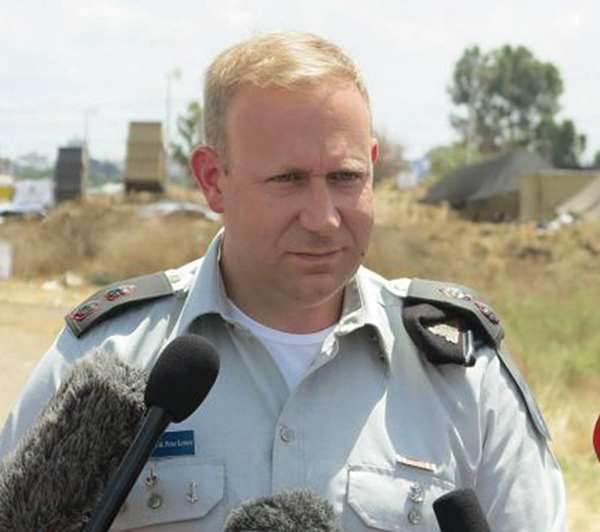
17. Michael Marmur (Rabbi Dr)
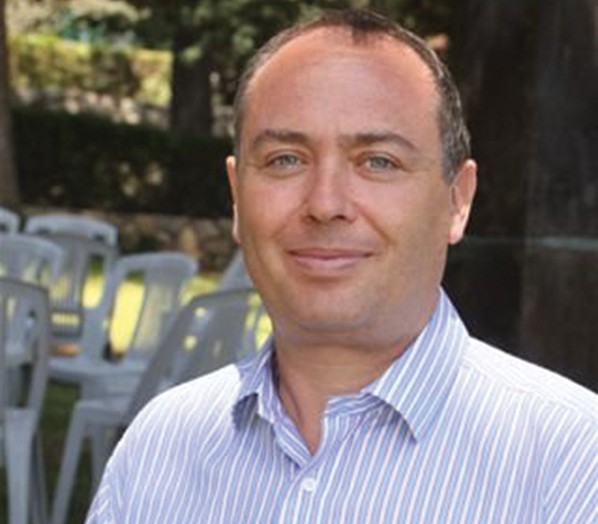
Rabbi Dr Michael Marmur is the Provost at the Hebrew Union College-Jewish Institute of Religion, the leading training facility for students entering the Reform rabbinate. Marmur’s wisdom, powerful rhetoric and sheer charisma has directly influenced an entire generation of Israeli rabbis, contributing to the Reform Movement’s growing profile in the country. Marmur’s own impressive scholarship centres on the thought of Abraham Joshua Heschel, one of the 20th century’s greatest rabbinic theologians, which formed the subject of an acclaimed 2016 book.
16. Isabel Kershner
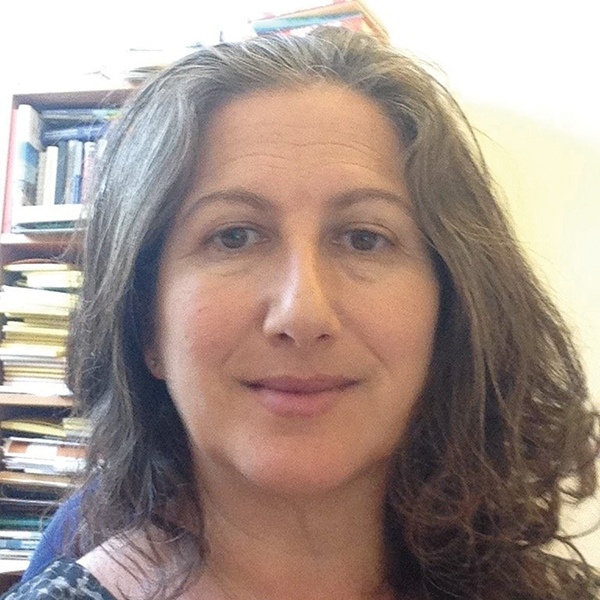
Isabel Kershner has held the demanding role of Jerusalem correspondent for the New York Times since 2007, updating one of the world’s most esteemed publications with detailed insights into the Israel-Palestinian conflict. Born in Manchester, Kershner studied Hebrew and Arabic at Oxford, the latter proving especially beneficial in her investigations of the West Bank and Gaza. Her 2005 book Barrier is the go-to account of the impact of the construction of Israel’s security fence on Israelis and Palestinians. Kershner has toed the coal-laden line between wanting the best for Israel and recognising that self-improvement sometimes critical journalism – a tension she has dealt with using immense professional vigour.
15. Mark Sofer
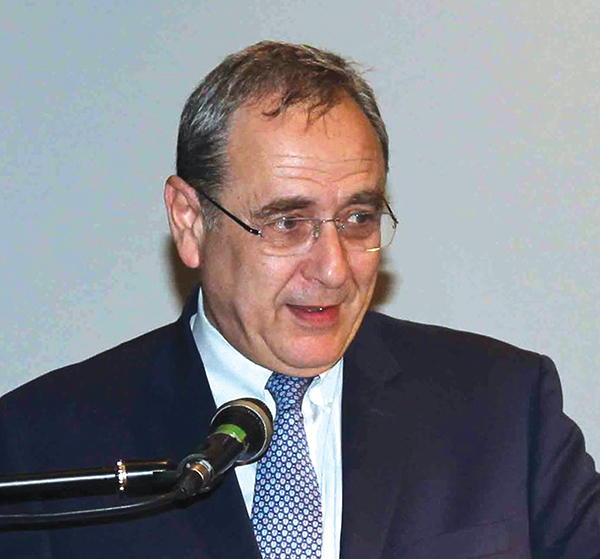
This year, Mark Sofer began his tour of service as Israel’s Ambassador to Australia, having previously held posts as the country’s top diplomat in Ireland and India. Sofer studied International Relations at the LSE and the Hebrew University, and has worked at the Foreign Ministry since 1981, including a stint advising Shimon Peres during the latter’s tenure as Foreign Minister. The expertise he acquired in New Delhi propelled him towards a senior role at the department’s Asia-Pacific division, with Sofer demonstrating a particular interest in promoting the potential of Israeli agricultural technology in stimulating the region’s developing economies. Sofer’s work in strengthening diplomatic ties with the world’s second-largest country contributed to the rapprochement which recently made Narendra Modi the first Indian prime minister to visit Israel.
14. Avivah Gottlieb Zornberg (Dr)
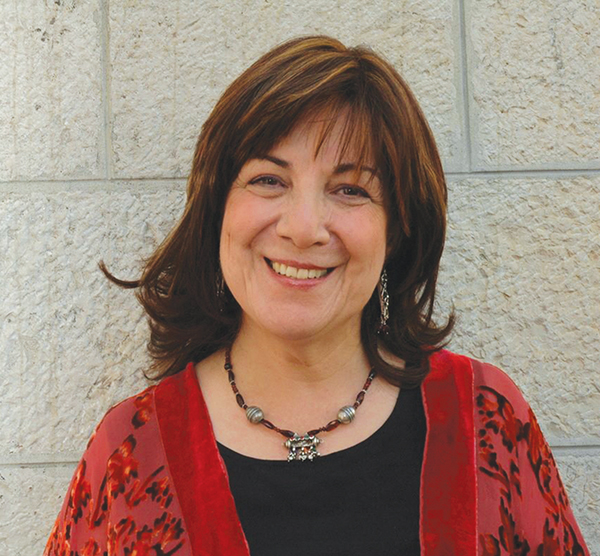
Dr Avivah Gottlieb Zornberg is a leading Torah commentator who has advanced the discipline of Biblical studies through her focus on the psychosocial undercurrents influencing the subjects of her works. Raised in Glasgow, Zornberg holds a PhD on the writings of George Eliot from Cambridge and taught English Literature at the Hebrew University before switching to Torah scholarship. She has written analytical commentaries on the books of Genesis, Exodus and Numbers, as well as a biography of Moses, which received great reviews.
13. David Rosen
Rabbi David Rosen is an undisputed leader in advancing interfaith relations, an expert on the Catholic Church, and an adviser on interreligious affairs to the Chief Rabbinate of Israel. Rosen was a communal rabbi in South Africa and later Chief Rabbi of Ireland, and his initiation of Israel’s diplomatic relations with the Vatican led to his becoming the first Israeli, and the first Orthodox rabbi, to receive a papal knighthood. He is currently director of the American Jewish Committee’s Department for Interreligious Affairs and sits on numerous committees, including the C-100, a group of faith leaders appointed by the World Economic Forum to strengthen ties between Muslim and non-Muslim communities.
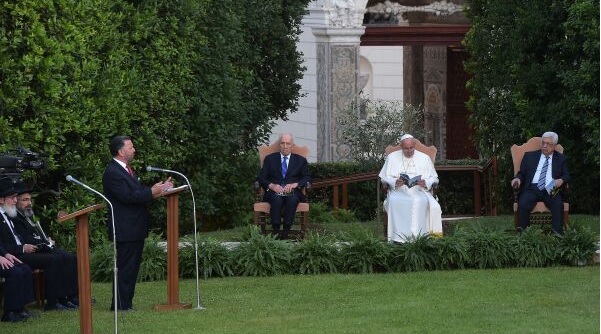
12. Justine Zwerling
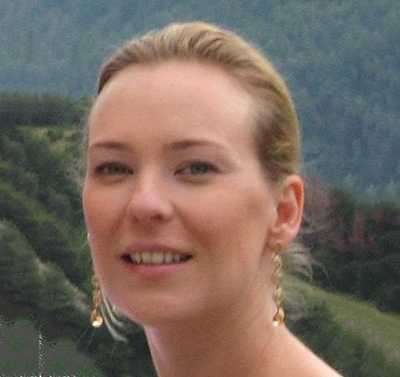
Justine Zwerling is employed by the London Stock Exchange Group as head of Primary Markets – Israel. In practice, this gives her overall responsibility for identifying promising Israeli companies and encouraging them to list in the UK – a mission she pursues relentlessly. She was previously deputy director for trade and investment at the British Embassy in Tel Aviv, helping more than 350 Israeli firms to expand their operations and create thousands of new jobs. Zwerling has become one of the most pivotal figures within the bilateral trade nexus, and has amassed broad-based respect among the highest echelons of business society in both countries.
11. Jason Pearlman
Jason Pearlman is an experienced communications strategist who has been Foreign Media Adviser to President Reuven Rivlin, perhaps the most internationally respected voice on the current Israeli political scene, since the latter took office three years ago. Pearlman grew up in Sunderland’s once-mighty Jewish community. His experience before making aliyah of working in public relations for the Board of Deputies and the Israeli Embassy in London allowed for a seamless transition to representing Israel on the global stage. The Brunel University politics graduate is a sought-after speaker for any audience seeking to understand the political challenges facing Israel and regularly contributes to Jewish communal seminars around the globe.
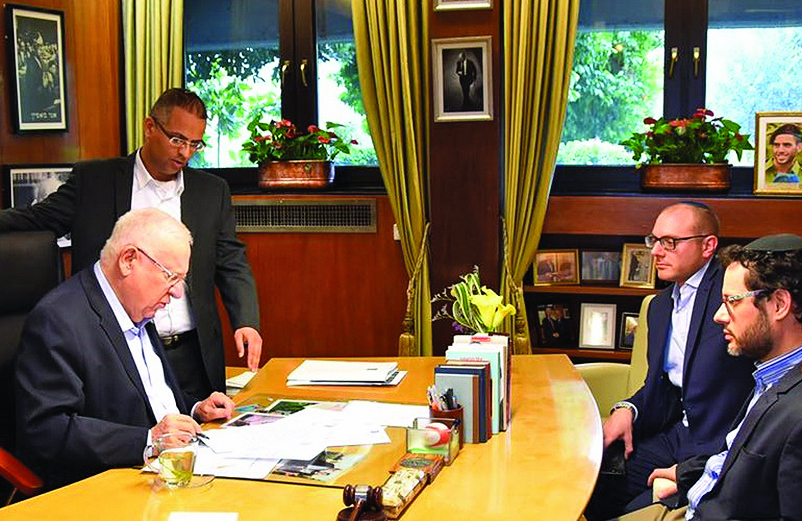
THE TOP TEN!
10. Jeremy Leigh
For Jeremy Leigh, ‘Jewish Journeys’ is not only the name of the educational tourism company he founded and his book, but also the doctrine to which he rigorously subscribes: helping each participant he meets to craft their own personalised Jewish journey. Leigh has taken groups of adults and students to far-flung corners of Europe and beyond, masterfully contextualising tales of the mellah of Marrakesh or the yeshivas of Vilnius in ways which fundamentally impact the Jewish identities of any audience. A true believer in leading by example, as a teacher at the Machon and at HUC Leigh has inspired countless young people through his own dedication to embodying, and educating about, progressive Zionist values. His ability to express complexities and nuances comprehensibly has cemented his reputation as the most in-demand tour educator: he has developed particular expertise working with UJS delegations for non-Jewish student leadership, equipping future politicos with the requisite knowledge to truly understand Israel.
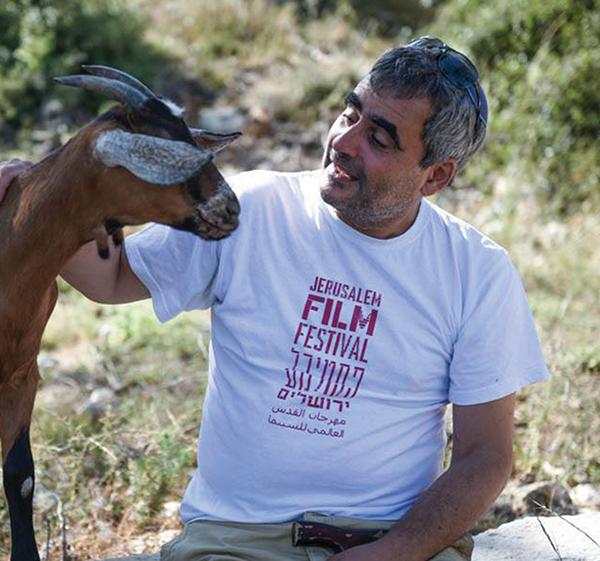
9. Fleur Hassan-Nahoum
Fleur Hassan-Nahoum is the list’s only entrant for whom Israel’s balmy summers did not come as a shock: the lawyer-turned-political activist hails from Gibraltar, and made aliyah in 2001. Hassan-Nahoum is part of an intriguing and exciting turn towards the inclusion of religious women in Israeli politics: The self-professed advocate for Orthodox feminists stood for Jerusalem’s city council in 2013, representing ‘Jerusalemites’, a new party aiming to fight for a pluralist city that looks after all of its communities. Born into a political family – her father, Sir Joshua Hassan, was Gibraltar’s most influential politician during her youth – she chose to focus on a different set of challenges, and is renowned for her humility and eagerness to relate on a personal level to everyone she meets. She began her career in Israel working for the JDC, advocating the rights of another disenfranchised demographic: olim from the Former Soviet Union and Ethiopia and though she could launch a bid for the Jerusalem mayoralty next year, for now she is gaining valuable experience in the capital’s municipal legislature.
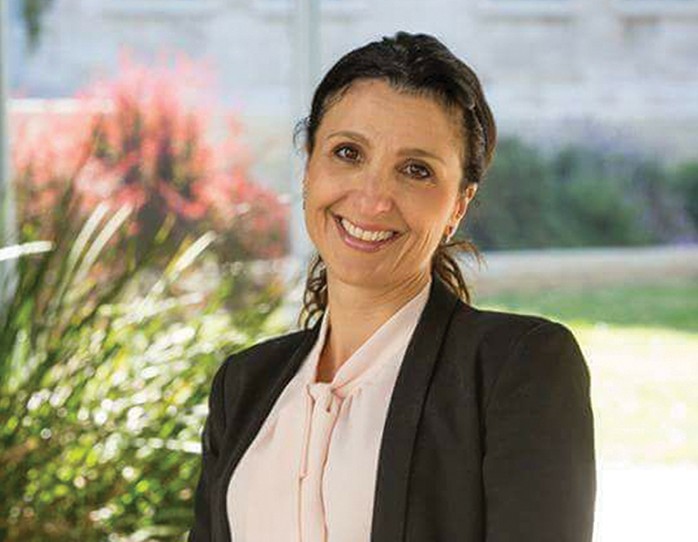
8. Nicky Cregor
Nicky Cregor made aliyah alone aged 19, studied social work in Haifa and Jerusalem, and has since risen through the ranks of the Jerusalem municipal infrastructure to become director of the city council’s volunteering department. Cregor coordinates the efforts of some 50,000 volunteers working with 400 NGOs, and continually works to increase these numbers, recognising the positive impact volunteering can have not only on its beneficiaries but on volunteers themselves. During the Second Intifada, she was tasked with attending to the families of the victims of terrorist attacks, a duty requiring not only immense empathy but also an empirical understanding of trauma. As coordinator of services for the elderly, she led a series of protests to raise governmental budget allocations and championed the causes of impecunious Haganah and IDF veterans and Holocaust survivors. Cregor is an expert negotiator, creating coalitions among disparate and diverse organisations and communities. Leaders across the third-sector world say that if you want to do good in Jerusalem – turn to Nicky Cregor.
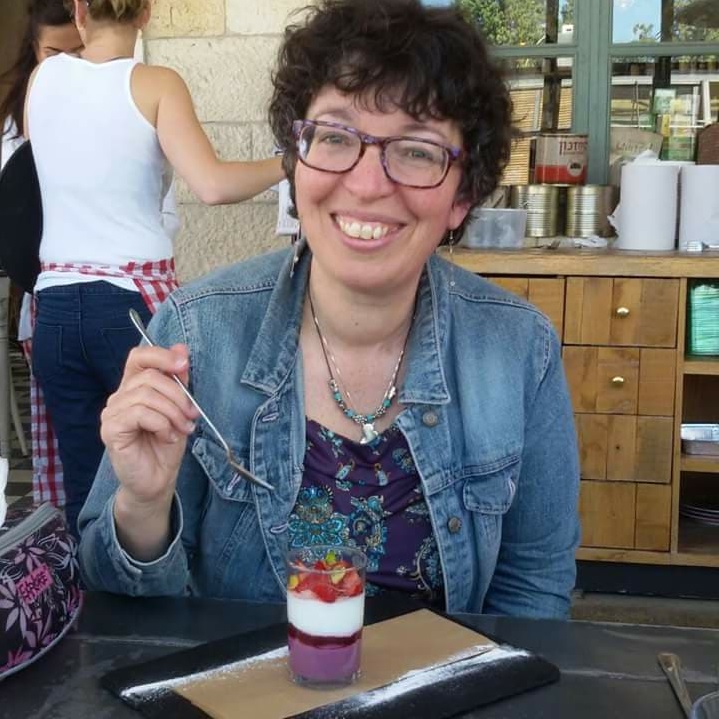
7. Yair Zivan
Yair Zivan is the standard-bearer for a new generation of Israeli political advisers who have collectively risen through the youth movement ranks and cut their teeth in UK campus politics and the IDF Spokesperson’s Unit. In 2014 Zivan became Foreign Affairs Adviser and International Media Spokesperson to Yair Lapid who founded the centrist Yesh Atid party and was the undisputed star of the 2013 election cycle. Yet despite his celebrity in Israel as a former television news anchor, Lapid lacked experience in foreign affairs and recruited Zivan to sharpen up his international image. Aged just 29 at the time of his appointment, Zivan had already served in a similar capacity for outgoing President Shimon Peres – a job he acquired after sending the veteran statesman his CV on a whim while an MA student at the IDC Herzliya. Raised in Leicester, Zivan grew up attending Maccabi, and after his gap year in Israel studied History at UCL and gained his first political role as UJS Campaigns Director. Colleagues praise Zivan’s work ethic, strategic thinking and unrivalled communications skills.
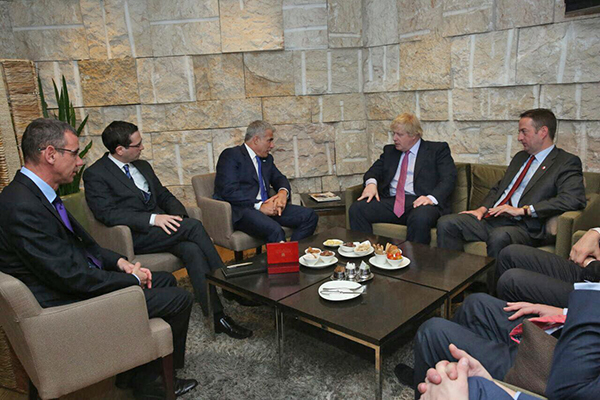
6. Daniel Goldman
Daniel Goldman who made aliyah in 1992 stands at the intersection of multiple crossroads: a Newcastle boy in an Anglo-Jewish scene dominated by Londoners; a British oleh who moved to Beit Shemesh, considered a more natural terrain for Moroccans and Russians; a Modern Orthodox Bnei Akiva-nik in a city known for its secular-Haredi squabbles; a religious Jew whose political affiliation leans leftwards; a successful businessman and prolific investor equally involved in the voluntary sector. The result of all of this is a dedicated, charismatic, and innovative social action warrior whose ability to bridge this multitude of sociocultural gaps is reflected in the name of the organisation he chairs: Gesher (‘bridge’). Gesher is Israel’s leading body in creating meaningful encounters among schoolchildren, soldiers, educators, and cultural figures from the Haredi, national-religious, traditional, and secular sectors. Under Goldman’s leadership, Gesher’s thoroughly professional and impactful work has enabled thousands of Israelis and Diaspora Jews to conceive a shared vision for Israel as a Jewish and democratic state.
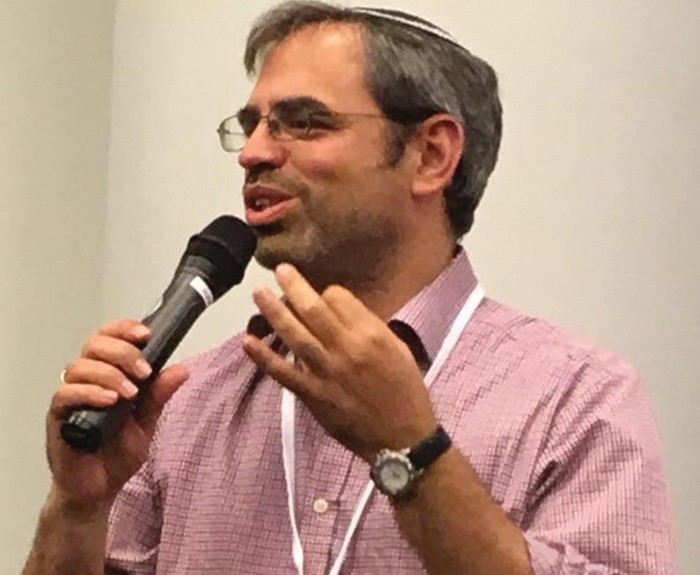
5. Zelda Harris
Since making aliyah in 1949, Zelda Harris’ tireless commitment to creating a fairer society has led to her involvement in countless campaigns. In the UK, she drove forward the 35s in their struggle to gain recognition for the plight of Soviet Jewry. In Israel, she founded Metuna, an organisation dedicated to improving road safety standards and worked with President Chaim Herzog to attempt to stabilise the Israeli electoral system. Harris was a trailblazer in linking Israel with the outside world, establishing BIPAC, the forerunner of BICOM, as a means of showing foreign journalists previously unheralded aspects of the country. A leading activist for the influential Women Wage Peace group, Harris also lobbied for the release of captured Israeli soldier Gilad Shalit. The 86-year-old Harris’ regular blogs for The Times of Israel offer reflections on her decision to abandon comfortable London for pioneering and revolutionary Israel.
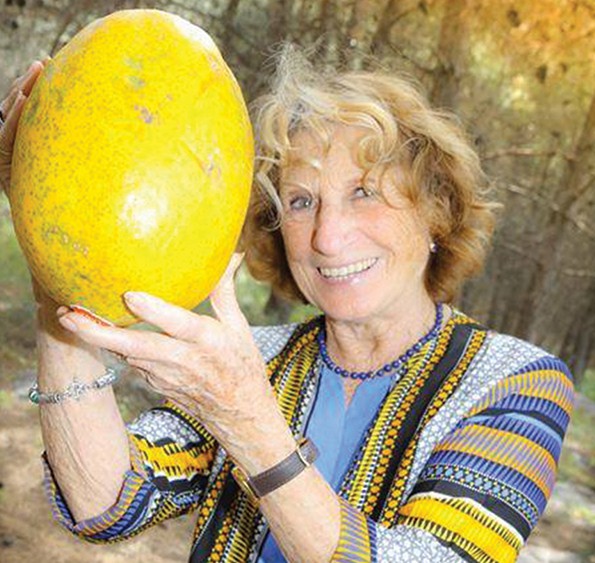
4. David Horovitz
David Horovitz is Israel’s leading English-language journalist. Horovitz spent much of his career at The Jerusalem Post, becoming editor in 2004 and consolidating the reputation of Israel’s oldest English-language daily. In 2011 he established The Times of Israel, an online-only news service which attracts up to 3.5 million readers per month. The site is open to bloggers of different ideologies, who write in five languages, including Arabic and Chinese. Its investigative content ranges from its struggle against the fraudulent binary options industry to its section on the Israeli tech and start-up scenes. The Times of Israel is politically independent, which reflects Horovitz’s own identification with a stranded Israeli centre ground that believes in peace but struggles to identify strong leadership capable of realising it. In his debut The Times of Israel editorial, Horovitz proclaimed its profound raison d’être: the State of Israel requires free media in order to prevent the third Jewish commonwealth, too, falling victim to baseless hatred.
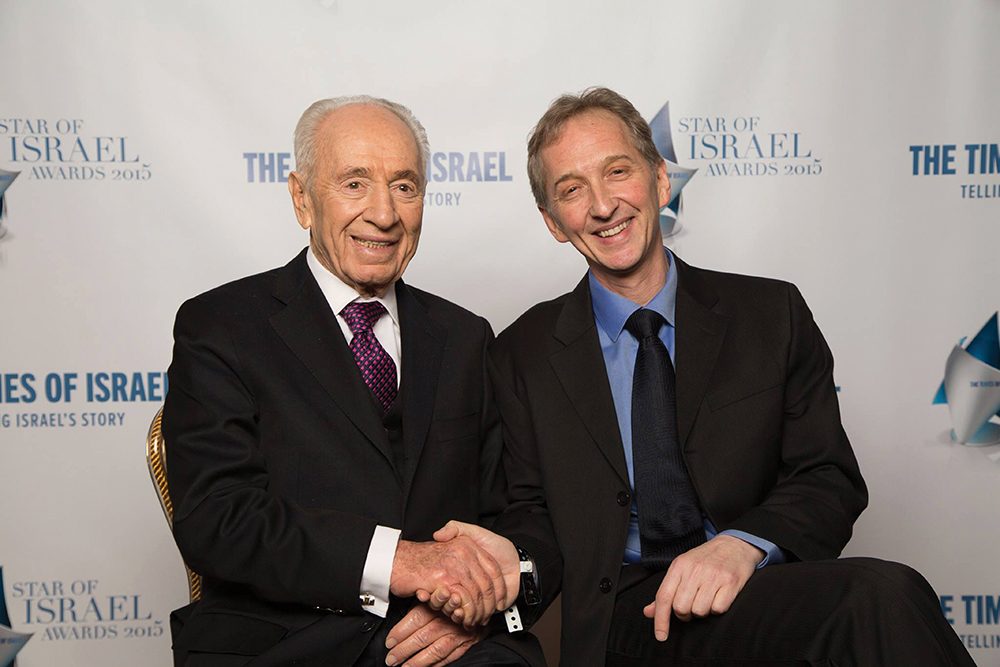
3 Daniel Taub
As Israel’s ambassador to the UK between 2011 and 2015, Daniel Taub deepened ties between the two countries to an unprecedented degree. Working in close quarters with Matthew Gould, the first Jewish ambassador to Israel, Taub’s tenure saw scientific and business cooperation boom. As a diplomat, Taub had made crucial contributions to the Camp David process. Despite never before having held an ambassadorial posting he thrived in London thanks to an adaptable character and broad skill set. He was equally comfortable defending Israel in the media and leading study sessions at Westminster Abbey. The Oxford and UCL graduate made aliyah in 1989 and worked as a speechwriter for Chaim Herzog. He was deputy legal adviser for many years at Israel’s Foreign Ministry and played a key role in negotiations with the Palestinians. Taub is now director of strategy and planning at Yad HaNadiv, the Rothschild family’s philanthropic foundation.
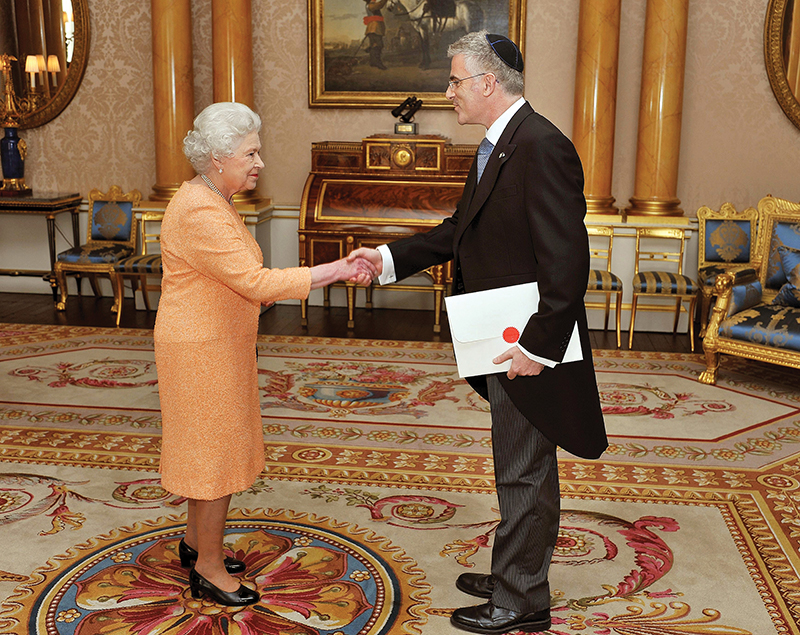
2. Efraim Halevy
Efraim Halevy is a giant of the Israeli intelligence community, who served as director of the Mossad between 1998 and 2002. He was special envoy to five consecutive prime ministers –Shamir, Rabin, Netanyahu, Barak, and Sharon – during a period which saw the inception, apogee and unravelling of the Israeli-Palestinian peace process. As a confidant of King Hussein, Halevy negotiated his greatest and longest-standing success: the 1994 peace treaty between Israel and Jordan. Many details about Halevy’s work will remain unknown, except for its intensity: an only child, Halevy’s missions forced him to miss his mother’s shiva. Since retiring from the intelligence apparatus he has developed into an opinionated figure and respected security mouthpiece, notably as a Hebrew University lecturer and during occasional media interviews. Pragmatic Halevy has little time for the Netanyahu-Bennett-Lieberman triumvirate and says negotiations with Hamas and Iran are essential for Israel’s future.
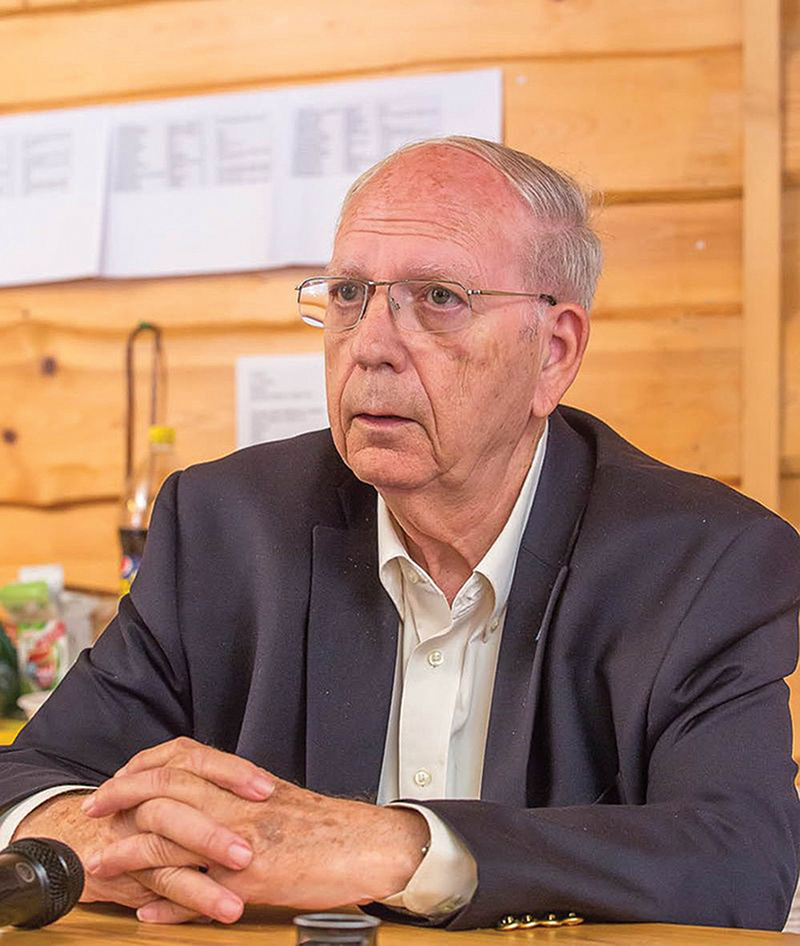
1 Alice Shalvi
Upon making aliyah in 1949, literature professor, pioneering educator and social activist Alice Shalvi plunged head-first into the melting point that was the new state. She typified the ingenuity of Israel’s founding generation. Whenever Shalvi identified a societal issue which bothered her, she would not think twice before looking to redress it.
Born in Germany in 1926, her family moved to London a year after Hitler’s rise to power. The precocious seven-year-old, presented to her new classmates as ‘our little refugee’, won a class prize for English just 18 months after arriving in the country and went on to study the subject at Cambridge.
Arriving in Jerusalem, Shalvi took a position teaching English at the Hebrew University. It quickly transpired that her restless intellect would take her further than running English classes for struggling undergraduates. She acquired a PhD in 1962 and headed the university’s English Literature department with such élan that when the fledgling Ben-Gurion University of the Negev was searching for a leading academic to found and direct its own parallel department, Shalvi was clearly the leading candidate – were it not for the supposition that a female academic couldn’t demand that her husband abandon his job to move to another city.
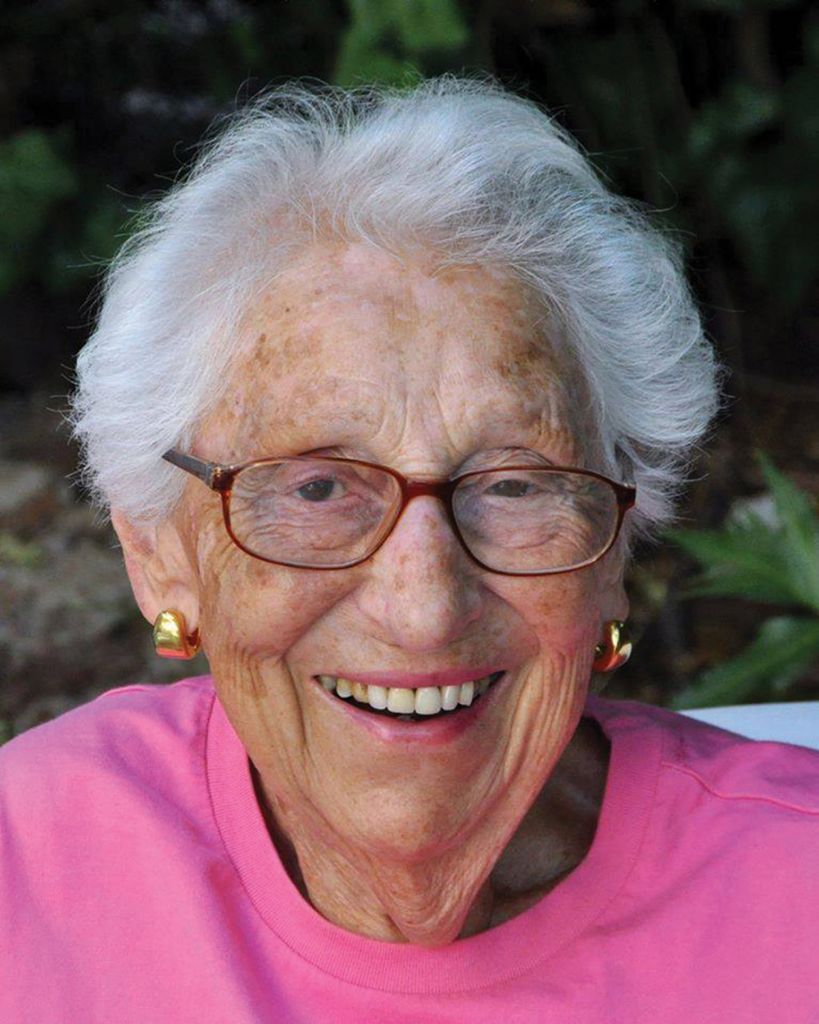
Shalvi’s feminist proclivities dated from Cambridge, where she successfully proposed a Jewish Society motion to enable women to lead after-dinner singing. The Ben-Gurion episode (she did, eventually, assume the role in Beer Sheva, and excelled) made her realise how starkly women were underrepresented in Israeli public life, so she founded the cross-party Israel Women’s Network (IWN) in 1984. The IWN was the country’s leading pressure group in advancing female leadership, and the MKs Shalvi mentored sponsored and passed ground-breaking legislation granting women greater employment rights and criminalising sexual harassment.
In 1975, Pelech, the religious girls’ school in Jerusalem where two of Shalvi’s daughters were studying, seemed in dire straits. Shalvi temporarily took over its management and ended up staying for 15 years, in order to fully implement her vision for a centre of academic excellence. Israel’s first democratic religious school emphasised both broader secular learning and more Talmud and religious study – so that young women would be equipped to participate fully in debates on the role of religion in society. Many of Shalvi’s techniques are staples in the makeup of Israeli schools today, while the network of Pelech sister schools across the country consistently tops results tables.
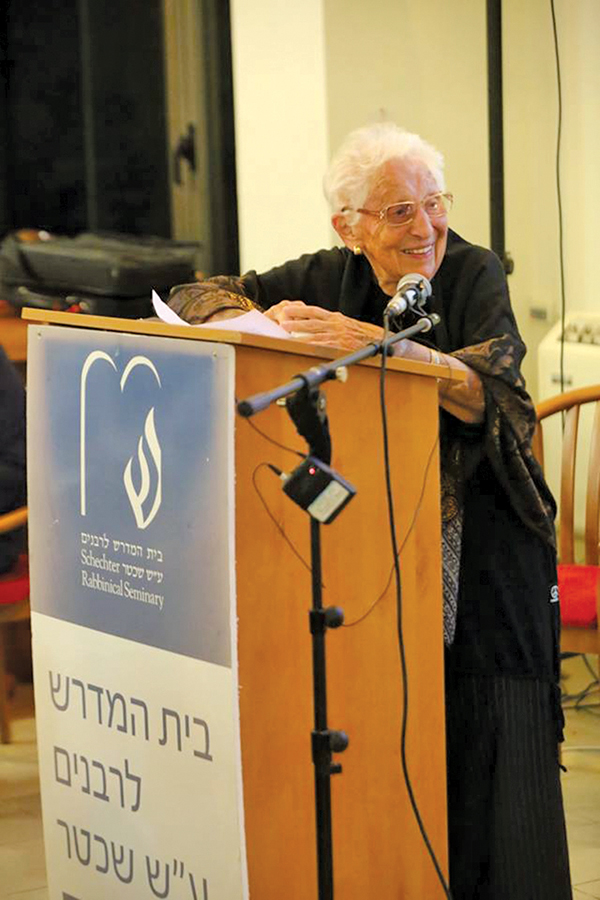
–
Gone but never forgotten
‘It is possible that we are the sons of merchants, but we are mainly the grandsons of prophets’, said the late Chaim Weizmann.
Here are 30 much-missed British-born men and women who helped build Israel.
Top 30 posthumous:
1. Chaim Weizmann
If not for Chaim Weizmann there would be no Jewish state. He migrated from Belarus to study chemistry in Germany, later taking an academic post at Manchester University. He lobbied for the 1917 Balfour Declaration, and he subsequently led the World Zionist Organisation almost continually throughout the Mandate period, negotiating in the world’s uppermost diplomatic echelons to pave the way for Israel’s creation. He was barely opposed in his candidacy to become Israel’s first President in 1949, and by the time of his death three years later had succeeded in consolidating the new state’ most vital engines.
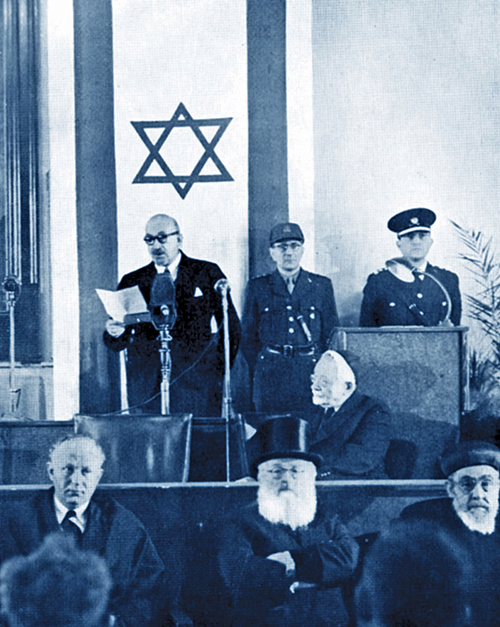
2. Abba Eban
Widely considered the greatest prime minister Israel never had, Abba Eban was a master of diplomacy and an oratory powerhouse. Born in Cape Town, Eban moved to London as a child. He was Israel’s ambassador to the USA and to the UN and elected vice-president of the General Assembly. He held numerous top ministerial posts.
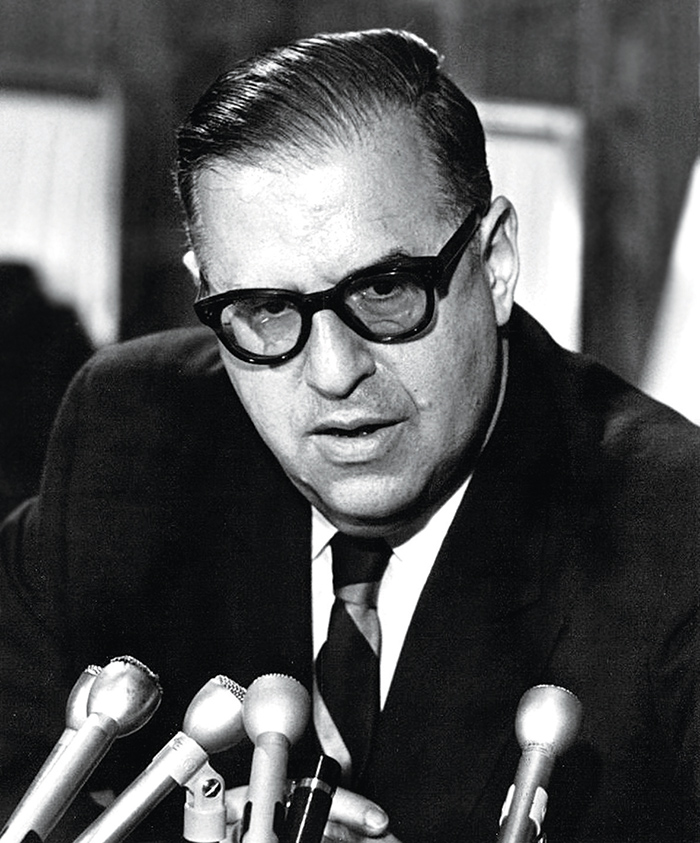
3. Chaim Herzog
Belfast-born Chaim Herzog reached the peak of his long military, legal, diplomatic and political career in 1983 by being elected the sixth president of Israel.
This is a position he held for a decade.
He was the first Israeli president to make an official visit to Germany, and ushered in the post-communist era by laying a plaque at Auschwitz in 1992.
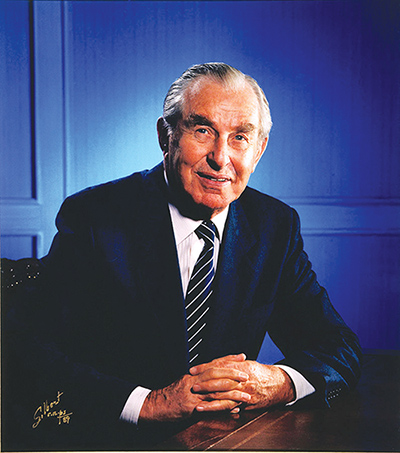
4. Zina Harman
In 1965, Zina Harman became the first Israeli to claim a Nobel Prize, collecting the Peace Prize for UNICEF, which she chaired at that time. She consistently advanced the causes of human rights and the status of women in both the Israeli and international arenas and enjoyed a broad and lengthy diplomatic and political career.
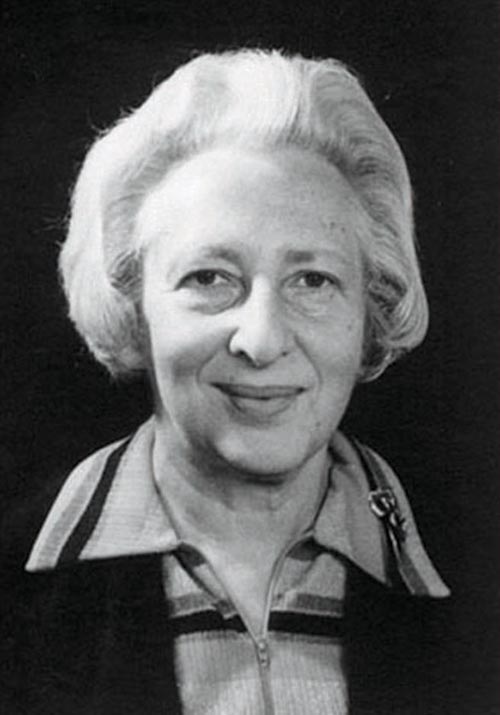
5. Yehuda Avner
Yehuda Avner wrote the bestseller The Prime Ministers: An Intimate Narrative of Israeli Leadership, encapsulating his unique proximity to power. He was adviser to four consecutive Israeli leaders – Eshkol, Meir, Rabin and Begin – during the most formative years and later became the first British-born Israeli ambassador to the UK.
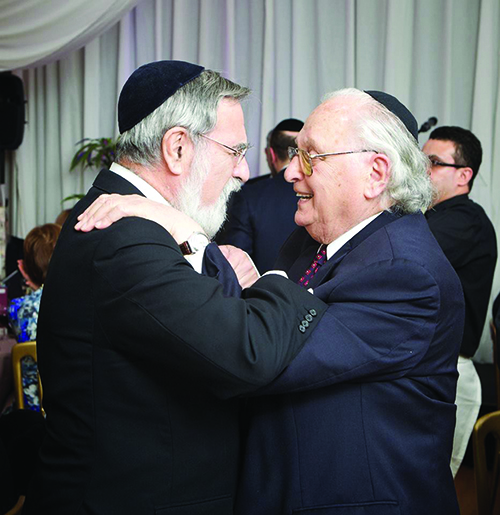
6. Asher Ginzberg (Ahad Ha’am)
Asher Ginsberg, also known as Ahad Ha’am (‘one of the people’) was a contemporary of Theodor Herzl and no less influential in shaping Zionist ideology. He established the Cultural Zionist school, and a central component of Ahad Ha’am’s doctrine was the unequivocal promotion of Hebrew as the national language.
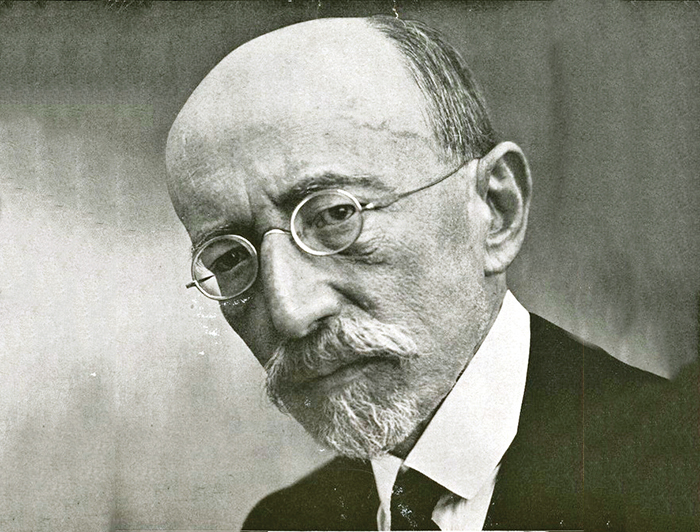
7. David Landau
David Landau’s life spanned Haredi yeshiva studies as a teenager to editor of liberal mouthpiece Haaretz from 2004-2008. He fused Israeli society’s often tribalised strands in one brilliant mind with an unorthodox yet cohesive worldview and also founded and edited Haaretz’s English-language version – his greatest single accomplishment.
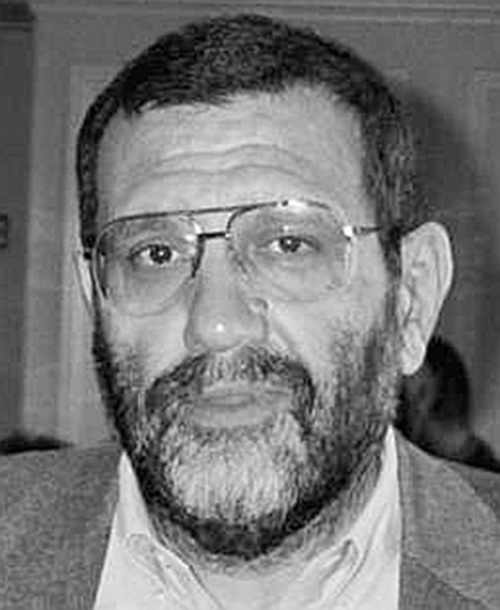
8. Wellesley Aron
Born in London and educated in Cambridge, Wellesley Aron was lured to Palestine in the 1920s but returned to the UK to serve as Chaim Weizmann’s political secretary. From this, he left the indelible impact of having established the youth movement Habonim as a means of educating young people about Jewish civilisation and Zionism.
9. Rav Kook
Rabbi Abraham Isaac Kook was the founder and chief ideologue of Religious Zionism. His synthesis of modern nationalism with halachic values turned members of Orthodox communities previously typified by their rejection of secular Zionism into leading partners in the movement to create a Jewish nation-state.
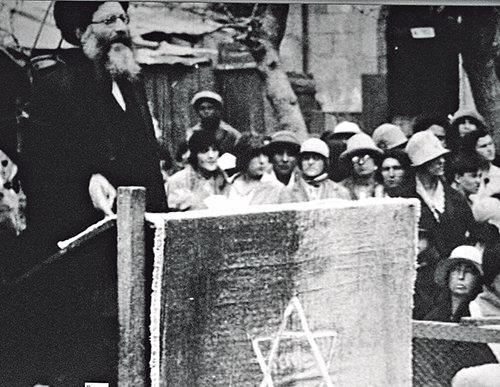
10. Isaac Halevi Herzog (Chief Rabbi )
Rabbi Isaac Halevi Herzog was the first Ashkenazi Chief Rabbi of Israel, a post he previously occupied during the Mandate era. Herzog thus canvassed religious support for the establishment of the state, symbolically ripping up a copy of the 1939 White Paper, which limited Jewish immigration to Palestine, outside the Old City’s Hurva synagogue.
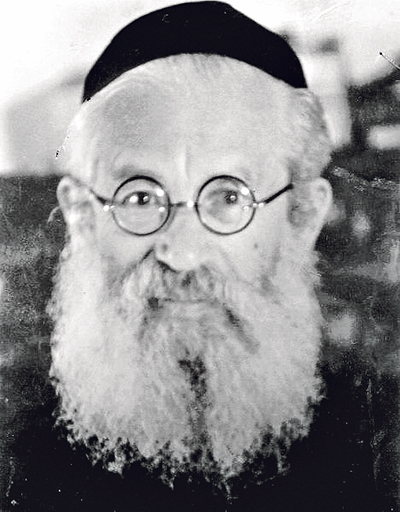
11. Avraham Harman
Avraham Harman was Israel’s ambas-sador to the US between 1959 and 1968, a period covering the Six Day War, a pivotal moment in cementing ties with the country. After passing the post to one Yitzhak Rabin, Harman became president of the Hebrew University and founded the Israeli Public Council for Soviet Jewry.
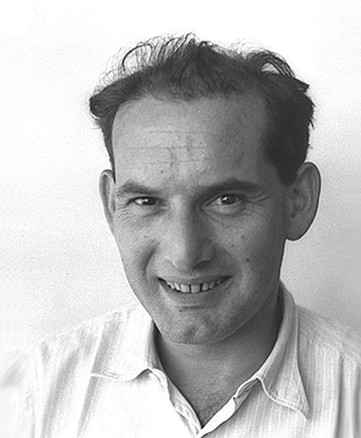
12. David Herbert Samuel (3rd Viscount)
Inheriting a peerage from his grand-father Herbert, High Commissioner of Mandate Palestine, David Herbert Samuel held the distinction of being the only Israeli to sit in the House of Lords. A scientific researcher who studied at Oxford alongside Margaret Thatcher, Samuel headed the faculty of chemistry at the Weizmann Institute.
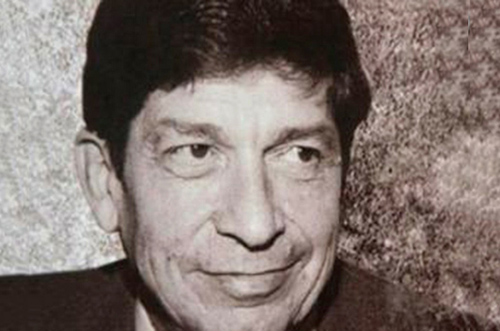
13. David Kimche
Mossad spymaster David Kimche was purportedly the main middleman between the US and Iran during the Iran-Contra affair, articulating Israeli interests clandestinely throughout Asia and Africa and befriending many heads of state. After retiring, he served as Director-General of the Foreign Ministry in the 1980s.
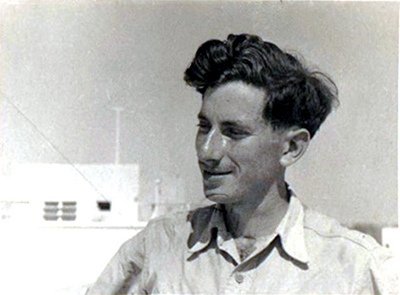
14. Arieh Handler
Arieh Handler, who passed away in 2011, was the last surviving witness of the signing of the Declaration of Independence. Generally credited as the founder of Bnei Akiva UK, Handler was a leader of the religious-Zionist community and a lifelong campaigner for Zionist causes and the rights of Jews in Ethiopia and the Soviet Union.
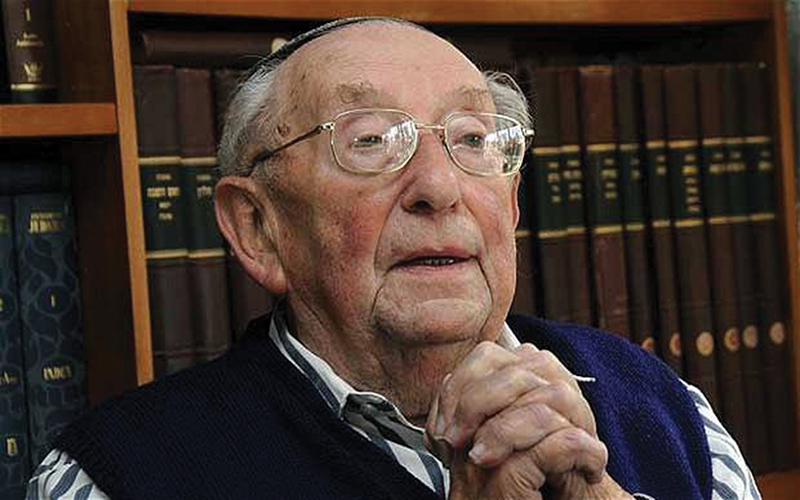
15. Norman Bentwich
Norman Bentwich was Attorney-General to the British Mandatory authorities in Palestine throughout the 1920s. His ties with Zionism led to suspicion from British officials, yet he belonged to Brit Shalom and his first lecture as chair of International Relations at the Hebrew University was disrupted by right-wing agitators.
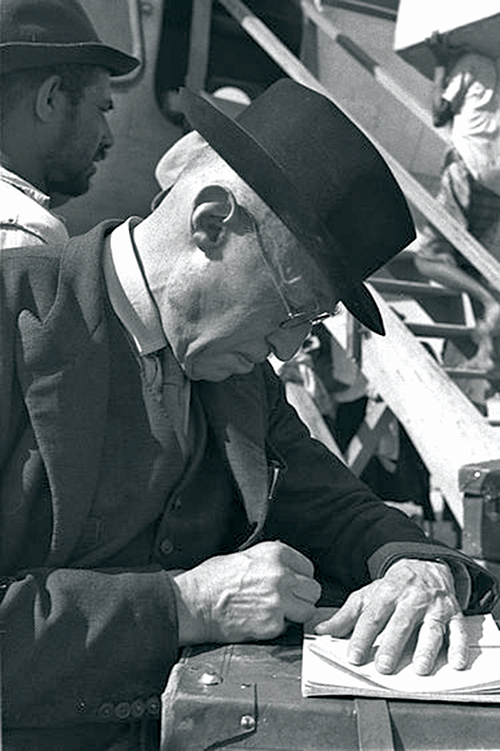
16. Esther Cailingold
Bnei Akiva leader Esther Cailingold made aliyah alone aged 21 in 1946, serving in the Haganah as a combatant and radio announcer. She was fatally wounded in the Old City of Jerusalem during the War of Independence. Her courage and perseverance are preserved through memorials in the Jewish Quarter and Kibbutz Lavi.
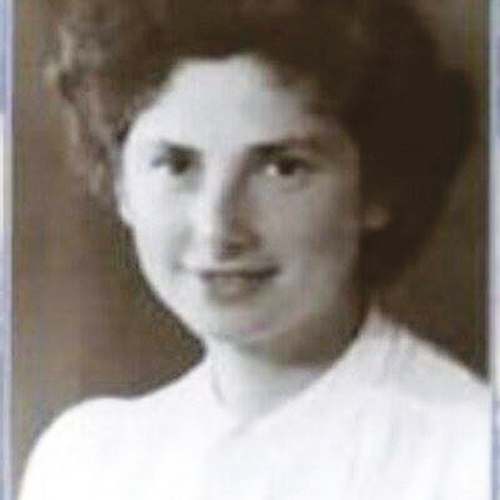
17. Micky Rosen
Rabbi Mickey Rosen established the innovative liberal-Orthodox Yakar synagogues in Tel Aviv and Jerusalem. The Yakar network emphasised social action and interfaith dialogue alongside rigorous commitment to Torah study and soulful Carlebach services, and became a magnet for English-speaking olim.
18. Marc Weinberg
After Marc Weinberg died in 2010 aged just 35, Modi’in’s chevra kadisha claimed his funeral saw the largest crowd in the city’s recent history. The entrepreneurial former Bnei Akiva mazkir revived the London School of Jewish Studies before making aliyah to Modi’in in 2006 and helping to establish the El-Ad synagogue.
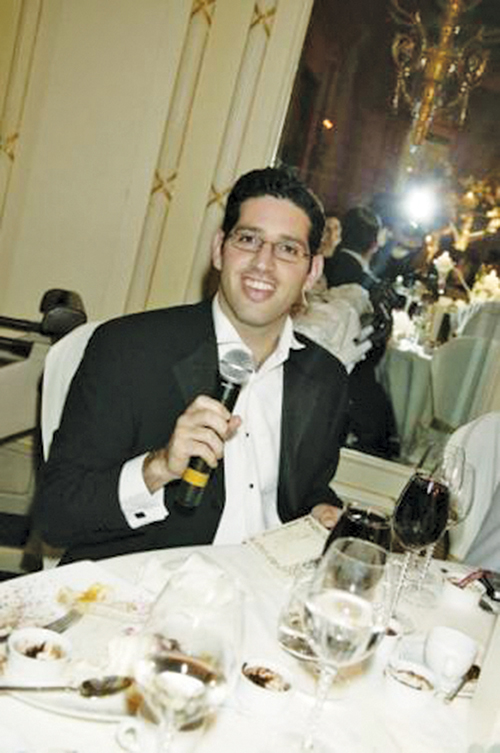
19. Pamela Kaplan
Pamela Kaplan devoted her life to encouraging aliyah and immigrant absorption in Israel. She first chaired the UK-based PATWA, which brought professionally-qualified Britons to Israel, and following her own aliyah after the Six Day War directed the Bat Yam absorption centre and an ulpan for Hebrew study in Tel Aviv.
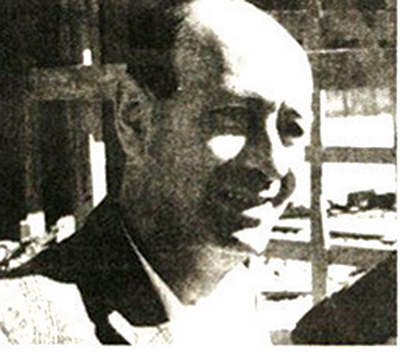
20. Joshua Cohen (Dr)
Glasgow-born Joshua Cohen oversaw one of the most dramatic moments in pre-state history as medical care director for 4,500 passengers aboard the refugee ship Exodus. In the 1950s, he devised a standardised plan for managing Israel’s hospitals, and later advised the World Health Organisation on immunisation and tropical diseases.
21. Zev Sufott
Zev Sufott became the first Israeli ambassador to China in 1992, opening a new and significant chapter in Israel’s diplomatic history. His remarkable journey from Liverpool to Beijing encompassed studies at Oxford and Yale, IDF enlistment during the War of Independence and diplomatic postings in the UK and the Netherlands.
22. Fred S. Worms
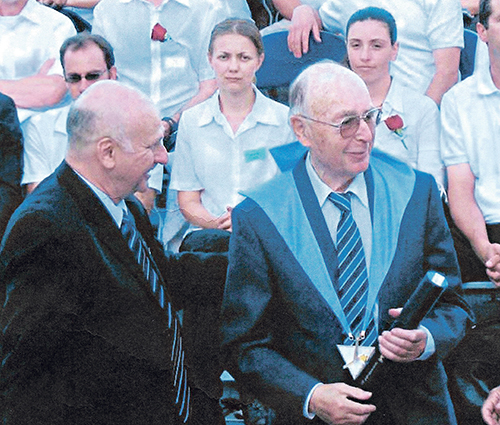
Philanthropist and entrepreneur Fred Worms came to Britain from Germany as a refugee, investing in Israel’s educational, cultural and sporting infrastructure before retiring to Jerusalem. His achievements included the student village at the Hebrew University and the Maccabiah village in Ramat Gan, among many other things.
23. Michael Fox
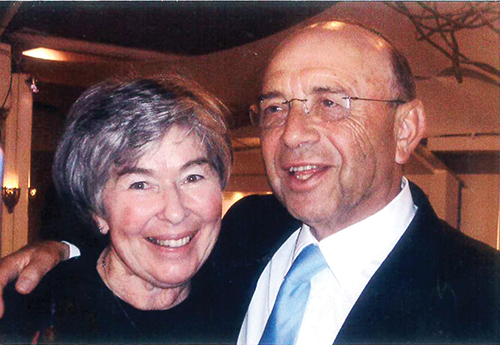
Michael Fox made aliyah in 1968 and co-founded Herzog, Fox & Neeman, now Israel’s premier law firm, employing more than 300 lawyers. Fox’s contribution to commercial relations with the UK earned him an MBE, and in retirement he contributed a monthly Haaretz column on politics and culture.
24. Leo Sachs (Professor)
In 1980, molecular biologist Professor Leo Sachs became the first Israeli to win the Wolf Prize for Medicine, for ground-breaking research on cancer cells. Born in Germany, he headed the Weizmann Institute Genetics Department for 27 years, won an Israel Prize for natural sciences and was elected a Fellow of the Royal Society in London.
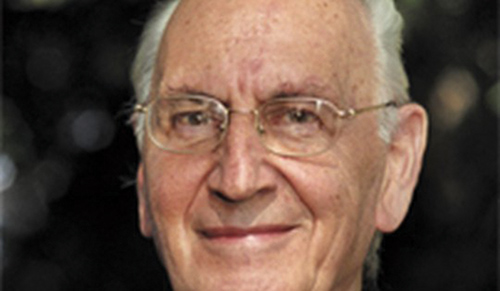
25. Cyril Domb
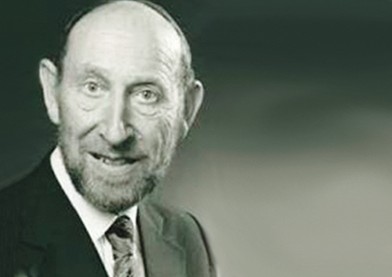
World-leading theoretical physicist Cyril Domb spent most of his career at King’s College London before making aliyah in 1981 to teach at Bar Ilan University. He wrote extensively on the tensions between science and halacha, and advised the Lubavitcher Rebbe on responding to such issues as evolutionary theory.
26. Asher Selig Kaufman
Asher Selig Kaufman headed Bnei Akiva UK as Israel declared independence, but stayed in Edinburgh to complete his doctorate in plasma physics. He later became Israel’s leading scholar in the field. He was devoted to the study of antiquity and used innovative archaeological methods, with the Mishnah, to locate the Holy of Holies.
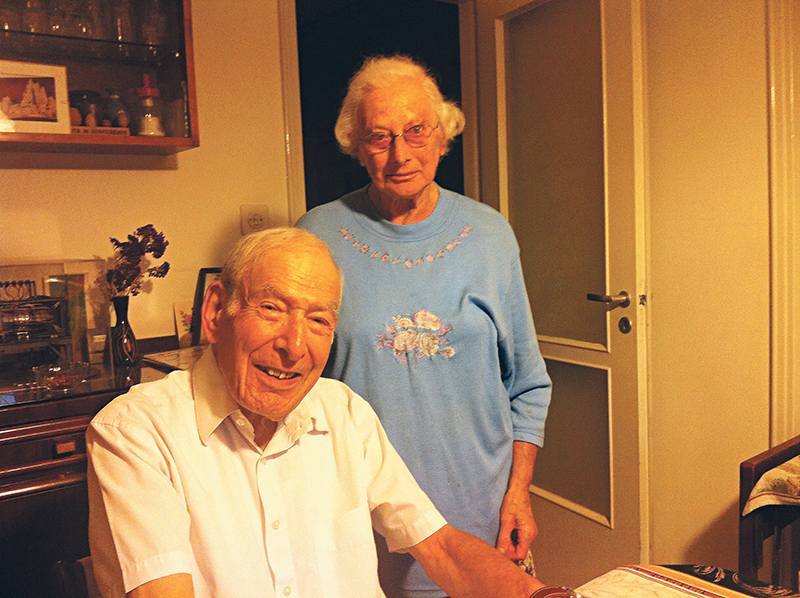
27. Bernard Cherrick
Dublin-born Bernard Cherrick made aliyah in 1947 and became vice-president of Hebrew University of Jerusalem. His fundraising brought a degree of celebrity and his networking skills led to the nickname ‘Mr Hebrew University’. The institution’s Cherrick Centre for the study of Zionist history is named in his honour.
28. Shabtai Rosenne (Sefton Wilfred David Rowson)
Shabtai Rosenne was a scholar of naval law and Israeli diplomat, joining the newly-formed Foreign Ministry at the establishment of the state. He represented Israel at the UN, held a professorial post at Bar Ilan University, and before passing away in 2010 assisted the inquiry into Israeli forces’ conduct during the Gaza flotilla raid.
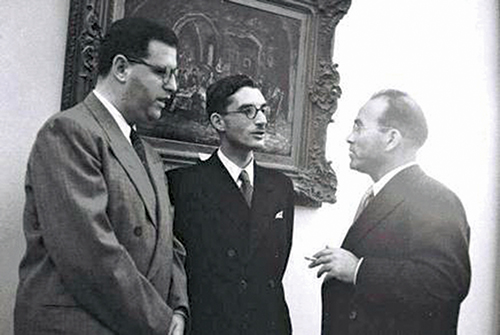
29. Isser Yehuda Unterman (Chief Rabbi)
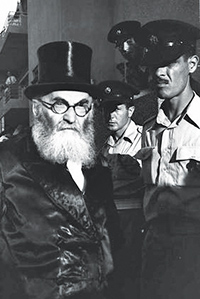
Rabbi Isser Yehuda Unterman was Chief Rabbi of Tel Aviv at the time of Israel’s declaration of independence, and served as Ashkenazi Chief Rabbi of Israel between 1964 and 1972. Unterman studied in Lithuania and migrated to Liverpool, serving the city’s congregations until the end of the Second World War.
30. Yonatan Boyden
Yonatan Boyden made aliyah from Manchester aged 12. He served in the Israeli navy and then an elite paratroop unit and at 19 sustained fatal wounds from Hezbollah fire during a rescue mission in Lebanon in 1993. Kehilat Yonatan synagogue in Hod HaSharon, where his father Michael is the communal rabbi, is named for him.

Thank you for helping to make Jewish News the leading source of news and opinion for the UK Jewish community. Today we're asking for your invaluable help to continue putting our community first in everything we do.
For as little as £5 a month you can help sustain the vital work we do in celebrating and standing up for Jewish life in Britain.
Jewish News holds our community together and keeps us connected. Like a synagogue, it’s where people turn to feel part of something bigger. It also proudly shows the rest of Britain the vibrancy and rich culture of modern Jewish life.
You can make a quick and easy one-off or monthly contribution of £5, £10, £20 or any other sum you’re comfortable with.
100% of your donation will help us continue celebrating our community, in all its dynamic diversity...
Engaging
Being a community platform means so much more than producing a newspaper and website. One of our proudest roles is media partnering with our invaluable charities to amplify the outstanding work they do to help us all.
Celebrating
There’s no shortage of oys in the world but Jewish News takes every opportunity to celebrate the joys too, through projects like Night of Heroes, 40 Under 40 and other compelling countdowns that make the community kvell with pride.
Pioneering
In the first collaboration between media outlets from different faiths, Jewish News worked with British Muslim TV and Church Times to produce a list of young activists leading the way on interfaith understanding.
Campaigning
Royal Mail issued a stamp honouring Holocaust hero Sir Nicholas Winton after a Jewish News campaign attracted more than 100,000 backers. Jewish Newsalso produces special editions of the paper highlighting pressing issues including mental health and Holocaust remembrance.
Easy access
In an age when news is readily accessible, Jewish News provides high-quality content free online and offline, removing any financial barriers to connecting people.
Voice of our community to wider society
The Jewish News team regularly appears on TV, radio and on the pages of the national press to comment on stories about the Jewish community. Easy access to the paper on the streets of London also means Jewish News provides an invaluable window into the community for the country at large.
We hope you agree all this is worth preserving.
- Features
- Alice Shalvi
- Efraim Halevy
- daniel taub
- David Horovitz
- Zelda Harris
- Daniel Goldman
- Yair Zivan
- Nicky Cregor
- Fleur Hassan-Nahoum
- Jeremy Leigh
- Jason Pearlman
- Justine Zwerling
- david rosen
- Avivah Gottlieb Zornberg (Dr)
- Mark Sofer
- Isabel Kershner
- Michael Marmur (Rabbi Dr)
- Peter Lerner
- Fay Morris
- Naomi Tsur
- David Newman
- Keren Hajioff (Major)
- Yonatan Ariel
- Karen Alkalay-Gut
- alan baker
- Brenda Katten
- Micky Rosenfeld
- Anshel Pfeffer
- Michael Dickson
- Elaine Hoter (Dr)
- Sarah Bernstein
- Judith Sacks
- Ashley Perry
- Mike Prashker
- Shuli Natan
- Jeremy Issacharoff
- Charlotte Halle
- Neville Lamdan (Mandel)
- Richard Pater
- Doreen Gainsford
- steve israel
- Toby Greene
- Zara Pomson-Provisor
- Asher Cailingold
- Colin Bulka
- Jacob Rowe (Prof)
- Daniel Sperber (Rabbi)
- Gideon Sylvester
- Sefton Bergson
- Trevor Asserson
- Joel Levy (Rabbi)
- Calev Ben Dor
- Michael Weingarten (Prof)
- Alan Sacks
- Jeremy Seeff
- Michael Freeman
- Danny Chinn
- Miriam Winston Jacobs
- Eli Ovits
- Karen Kaufman
- James Grant-Rosenhead
- Joshua Hantman
- Danni Franks
- Jonathan Rynhold
- Zvi Schreiber
- Tamar Lazarus (Kosky)
- Miriam Feldmann Kaye
- Matthew Kalman
- Fiona (Refson) Darmon
- The Portnoy Brothers Sruli & Mendy)
- News
- aliyah
- UK-Israel relations
- Israel-UK relations
- gaza
- Shabbatuk
- israeli culture
- Balfour 100
- Balfour Centenary celebrations
- Israel News
-
By Brigit Grant
-
By Laurent Vaughan - Senior Associate (Bishop & Sewell Solicitors)
-
By Laurent Vaughan - Senior Associate (Bishop & Sewell Solicitors)
-
By Laurent Vaughan - Senior Associate (Bishop & Sewell Solicitors)
-
By Laurent Vaughan - Senior Associate (Bishop & Sewell Solicitors)


